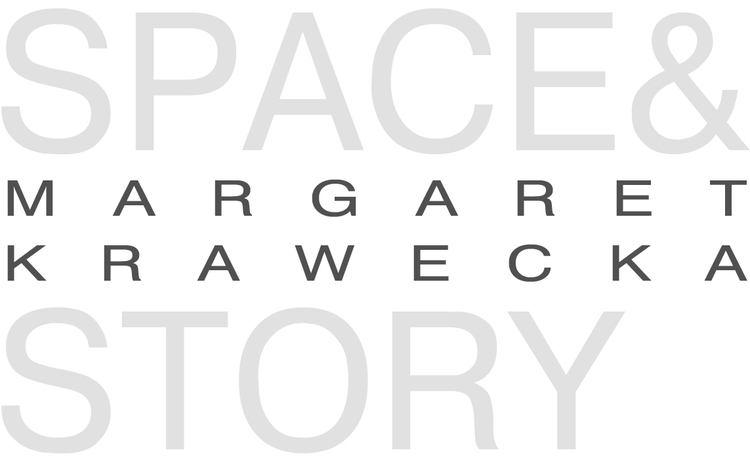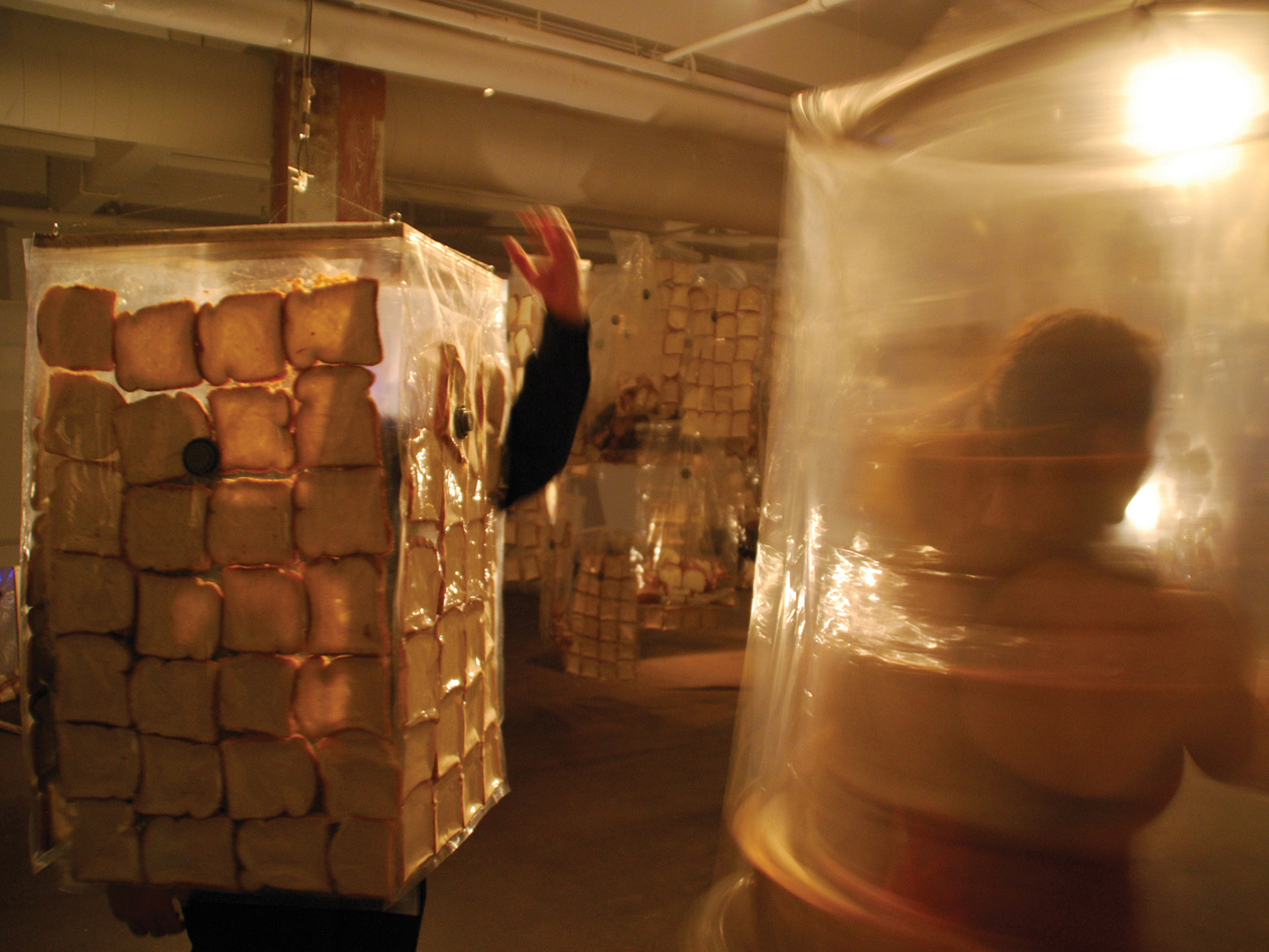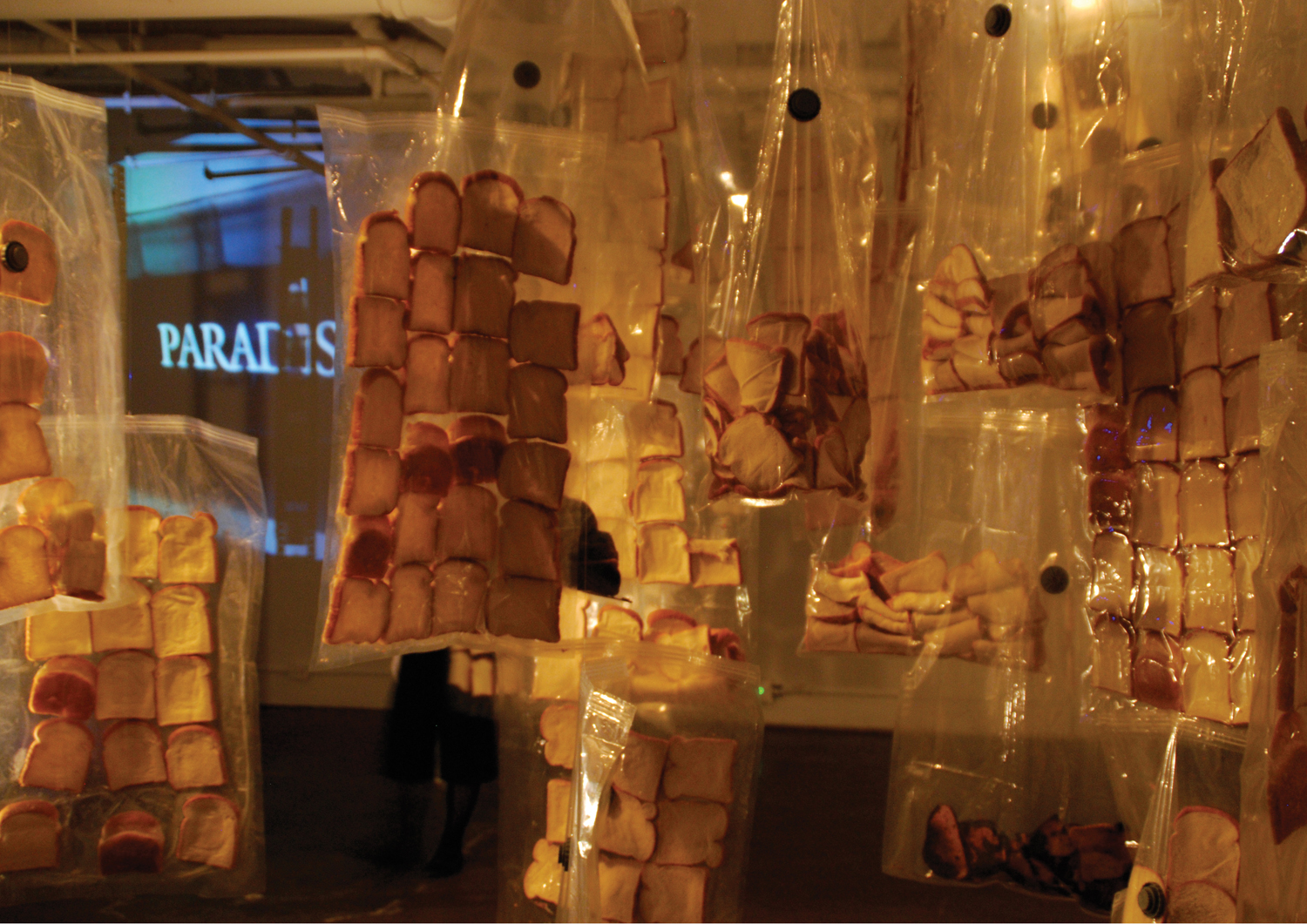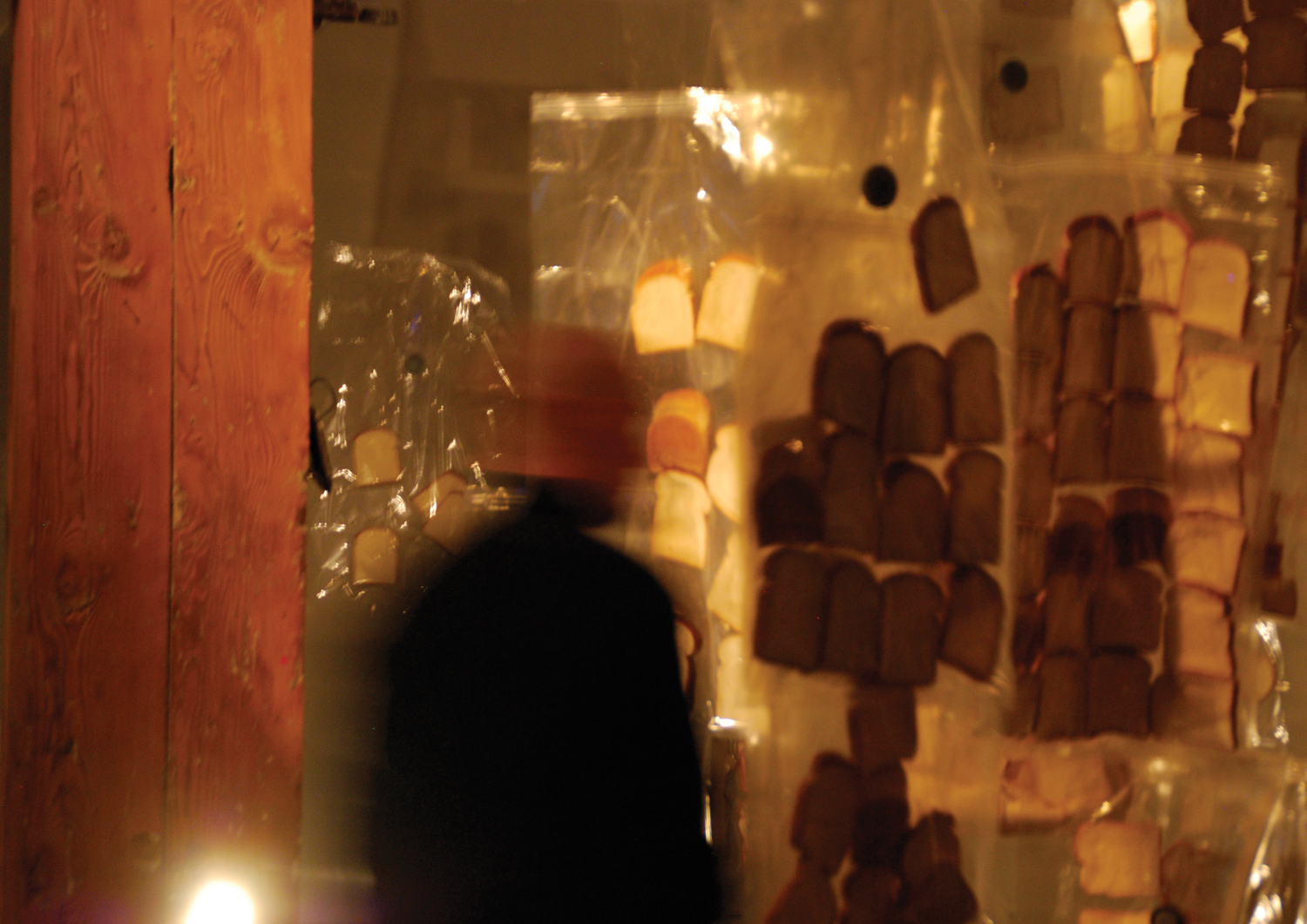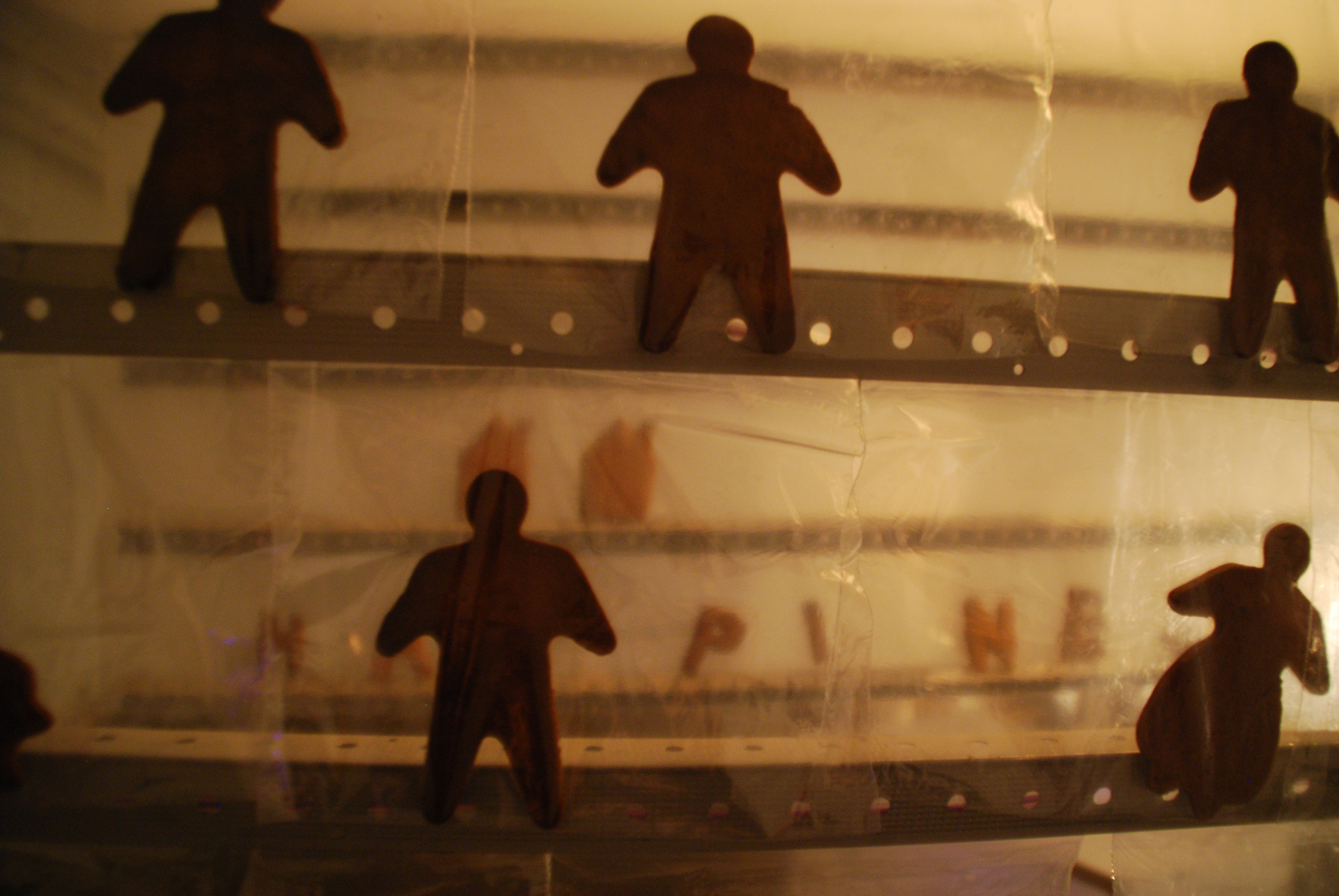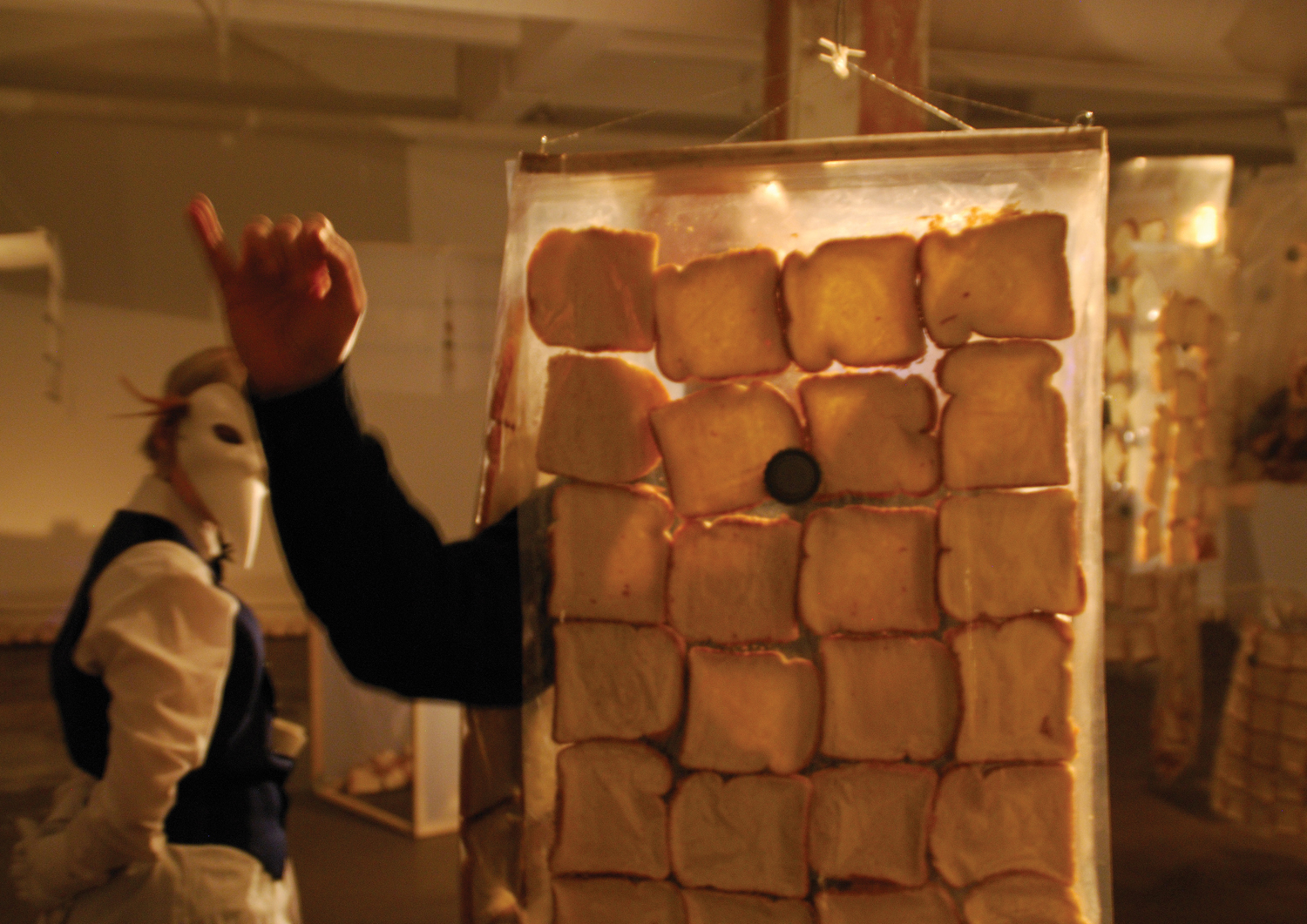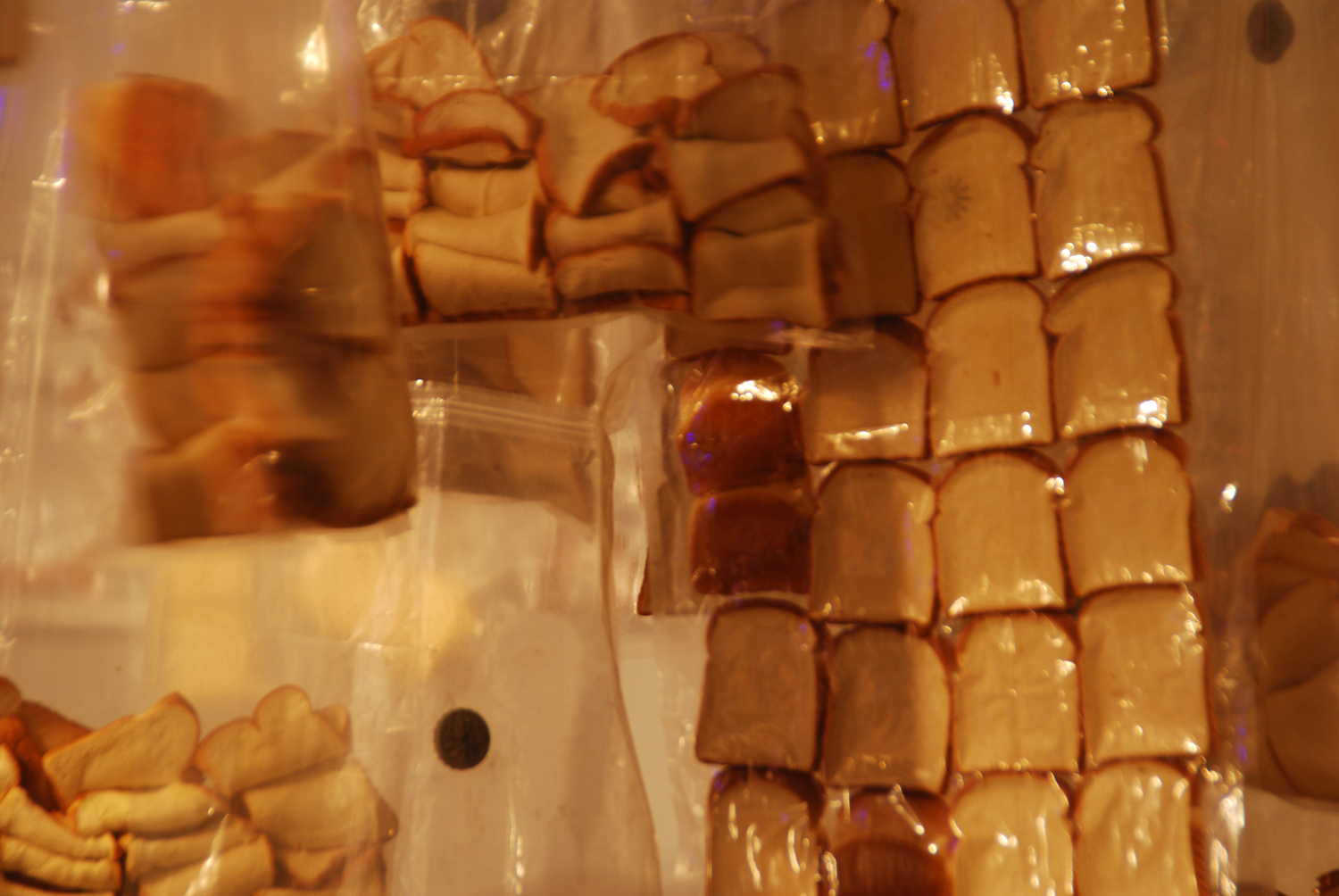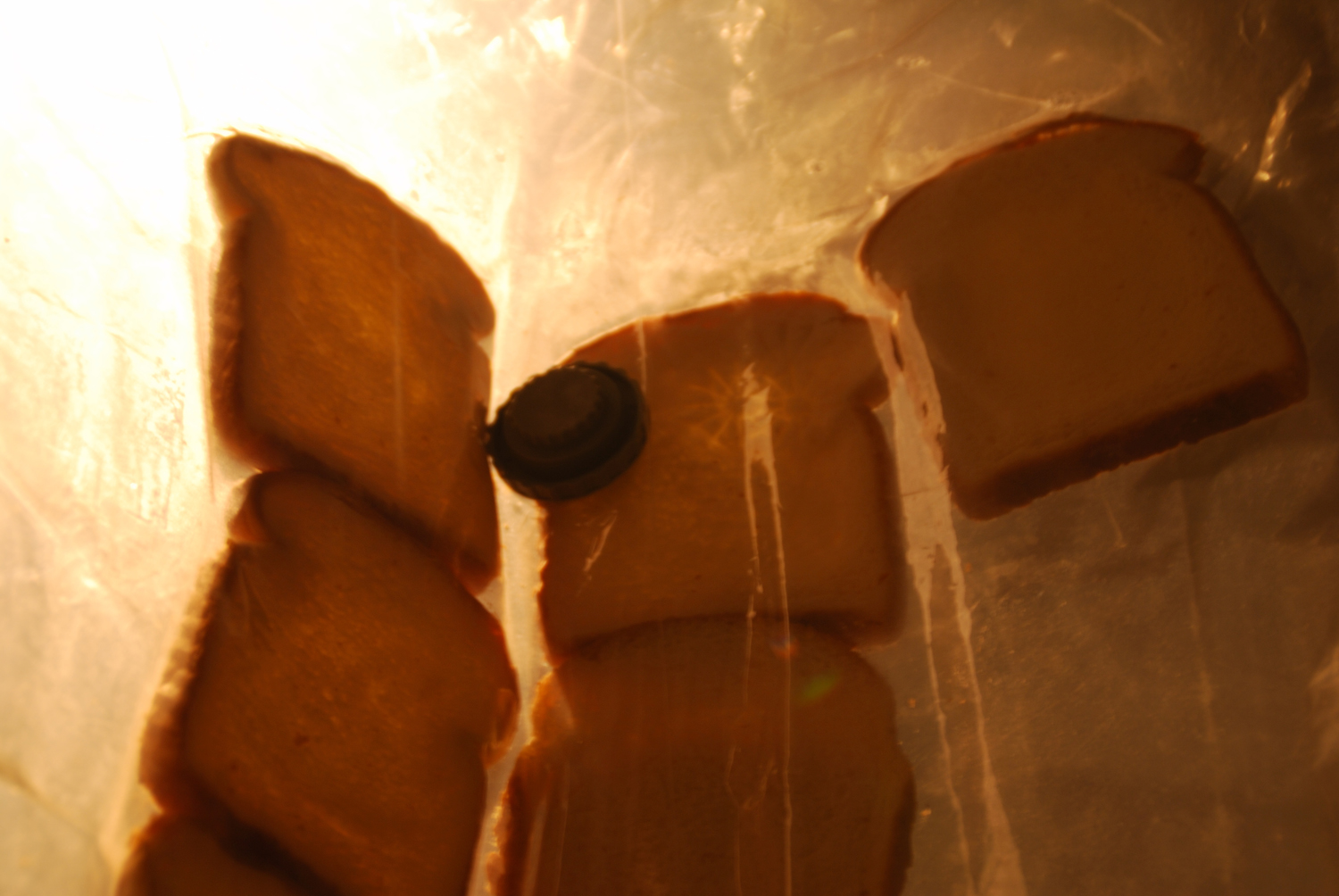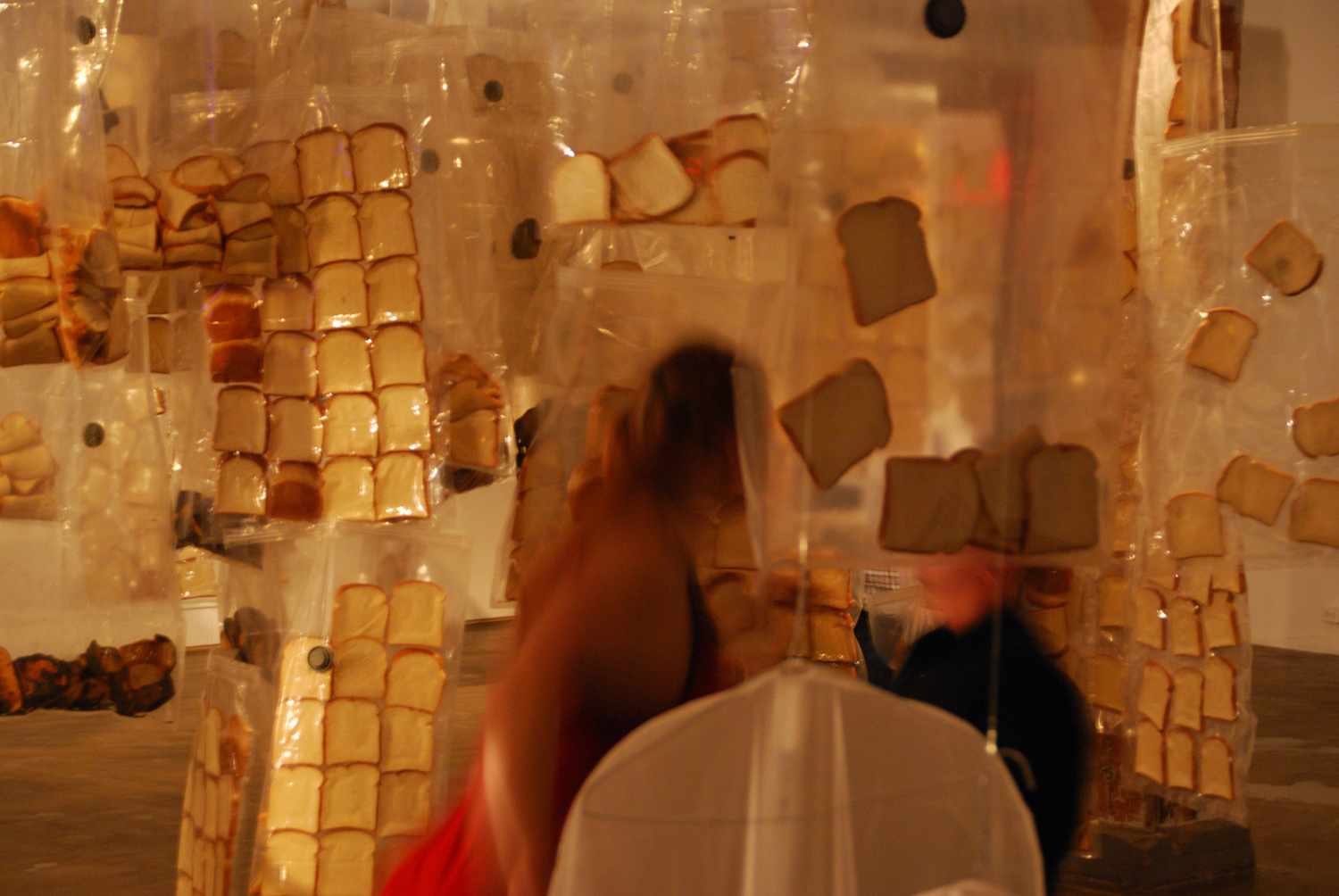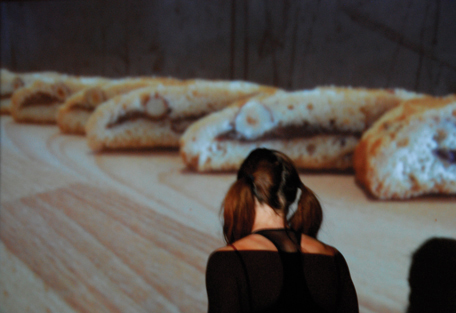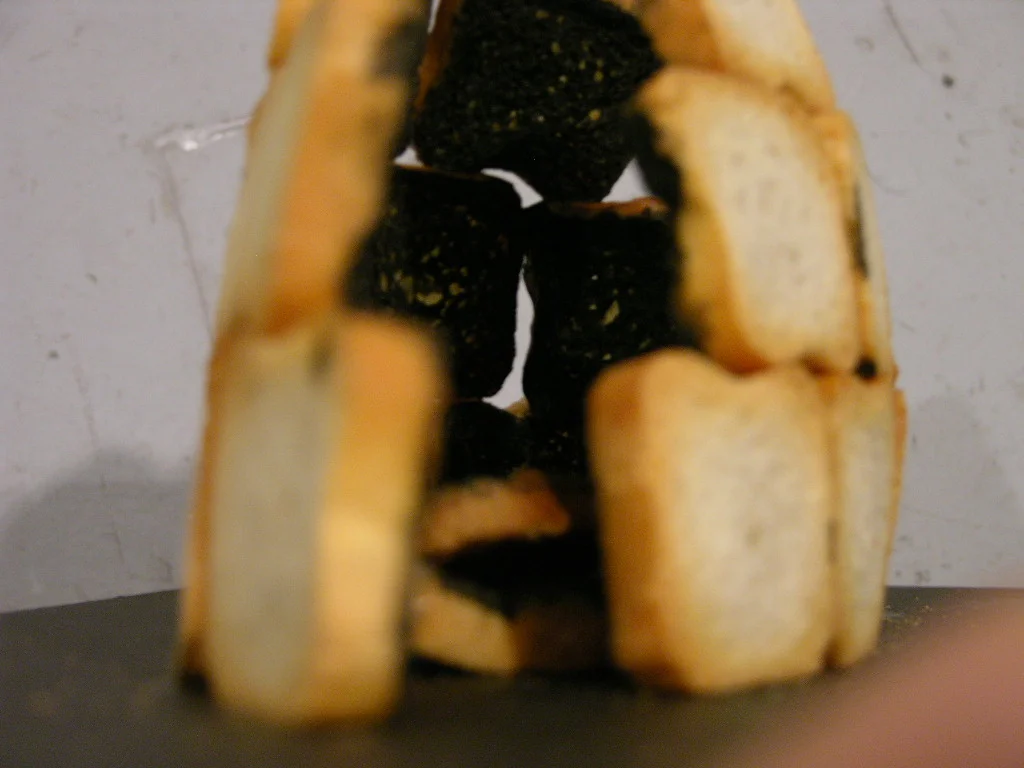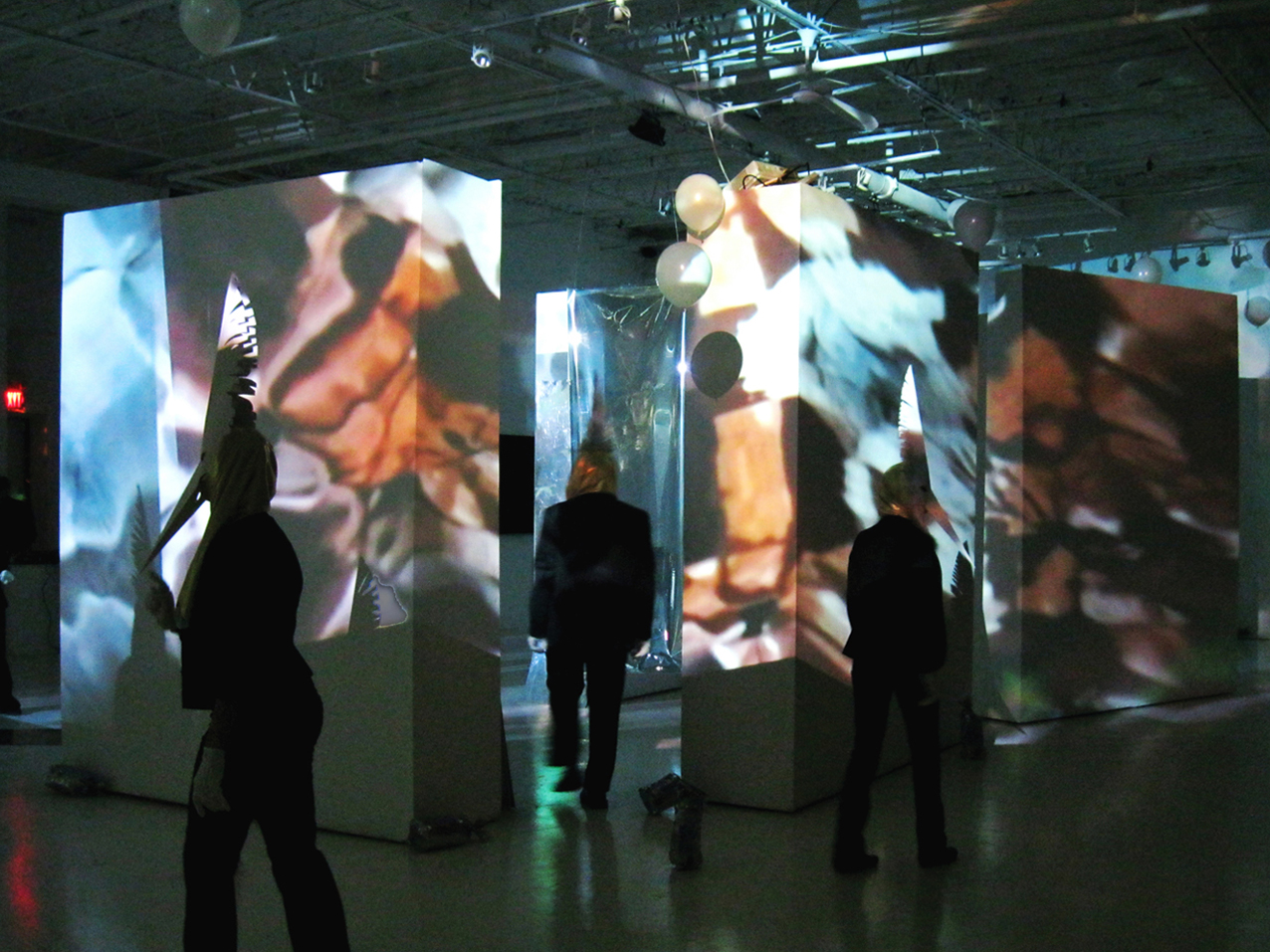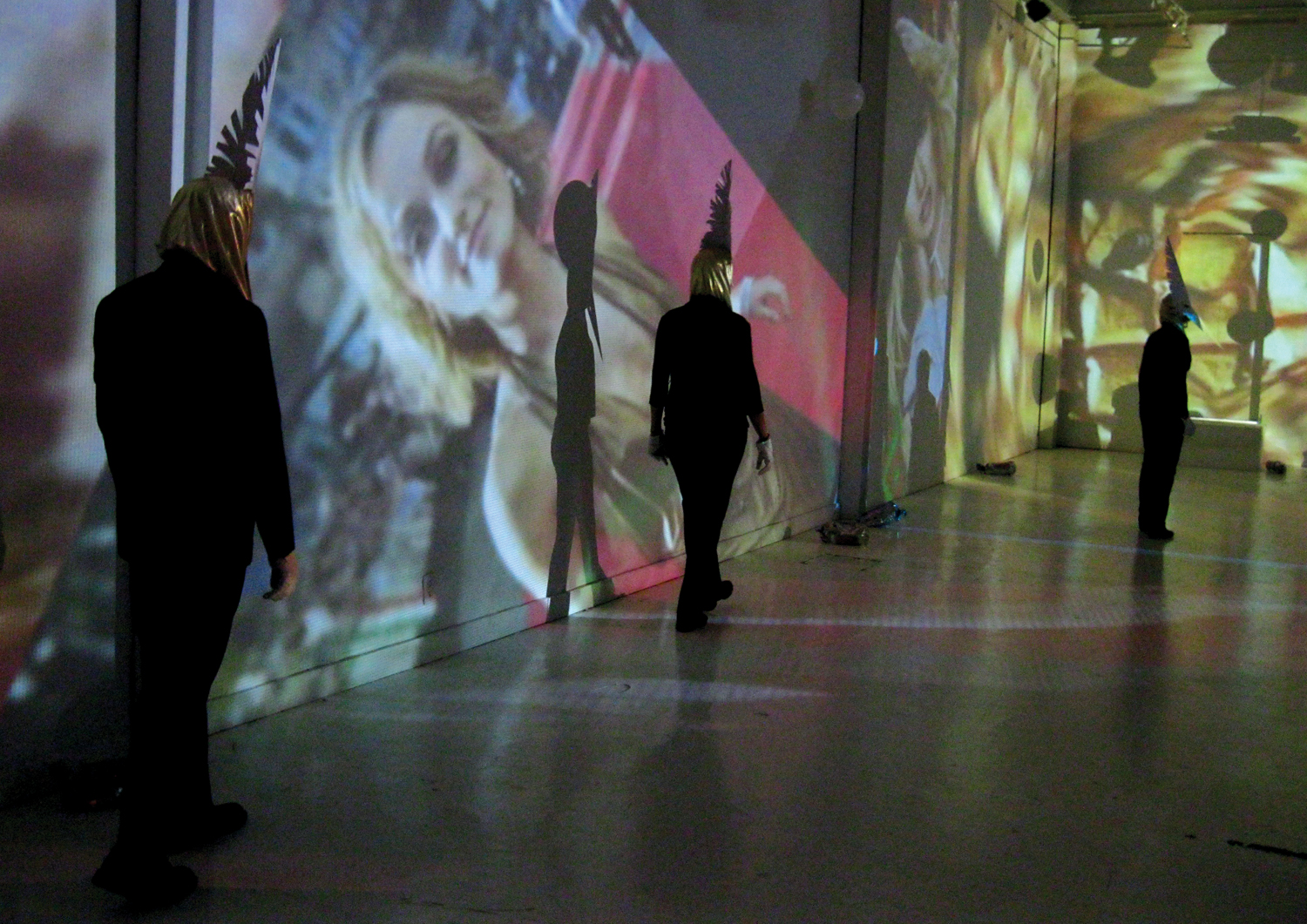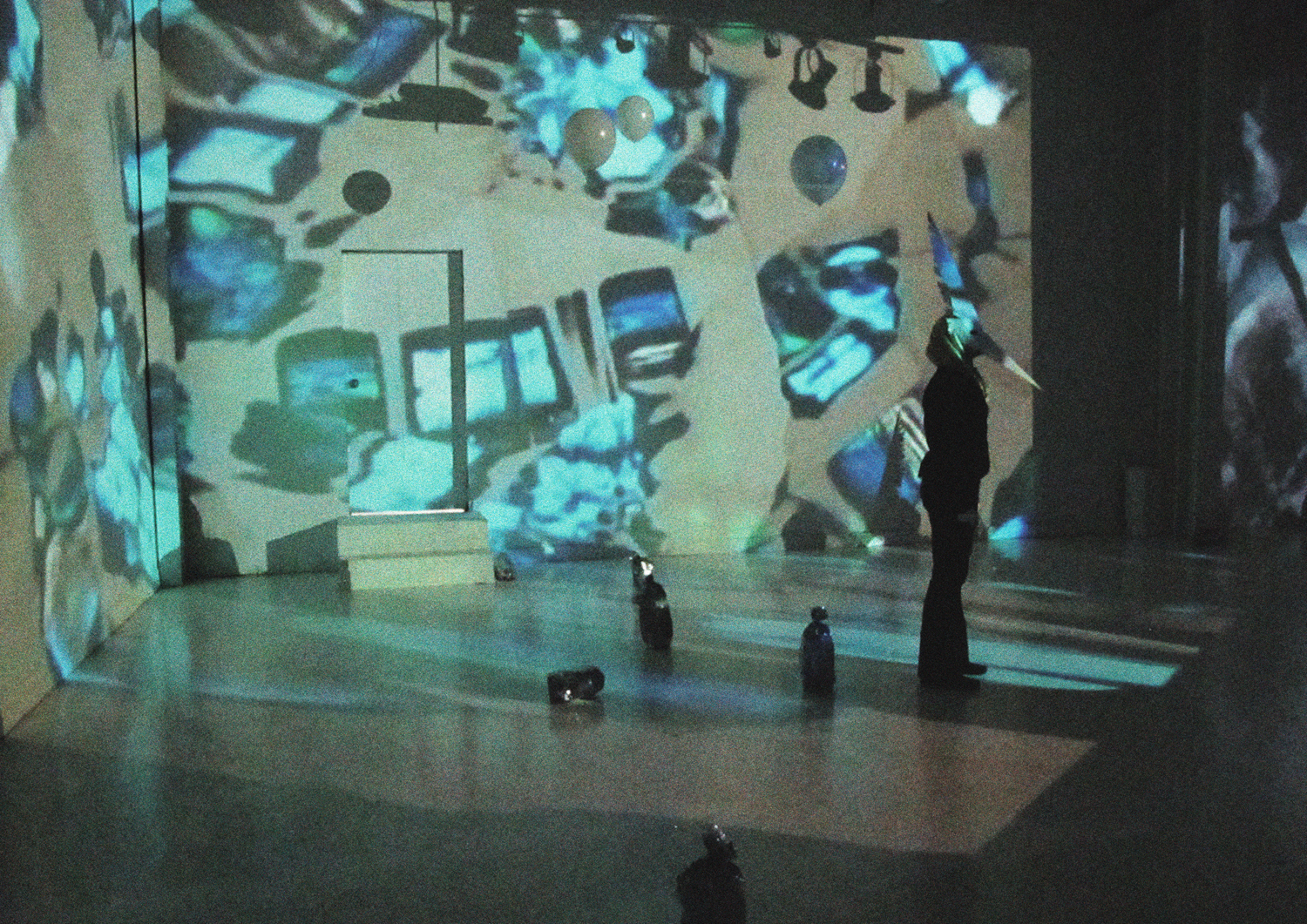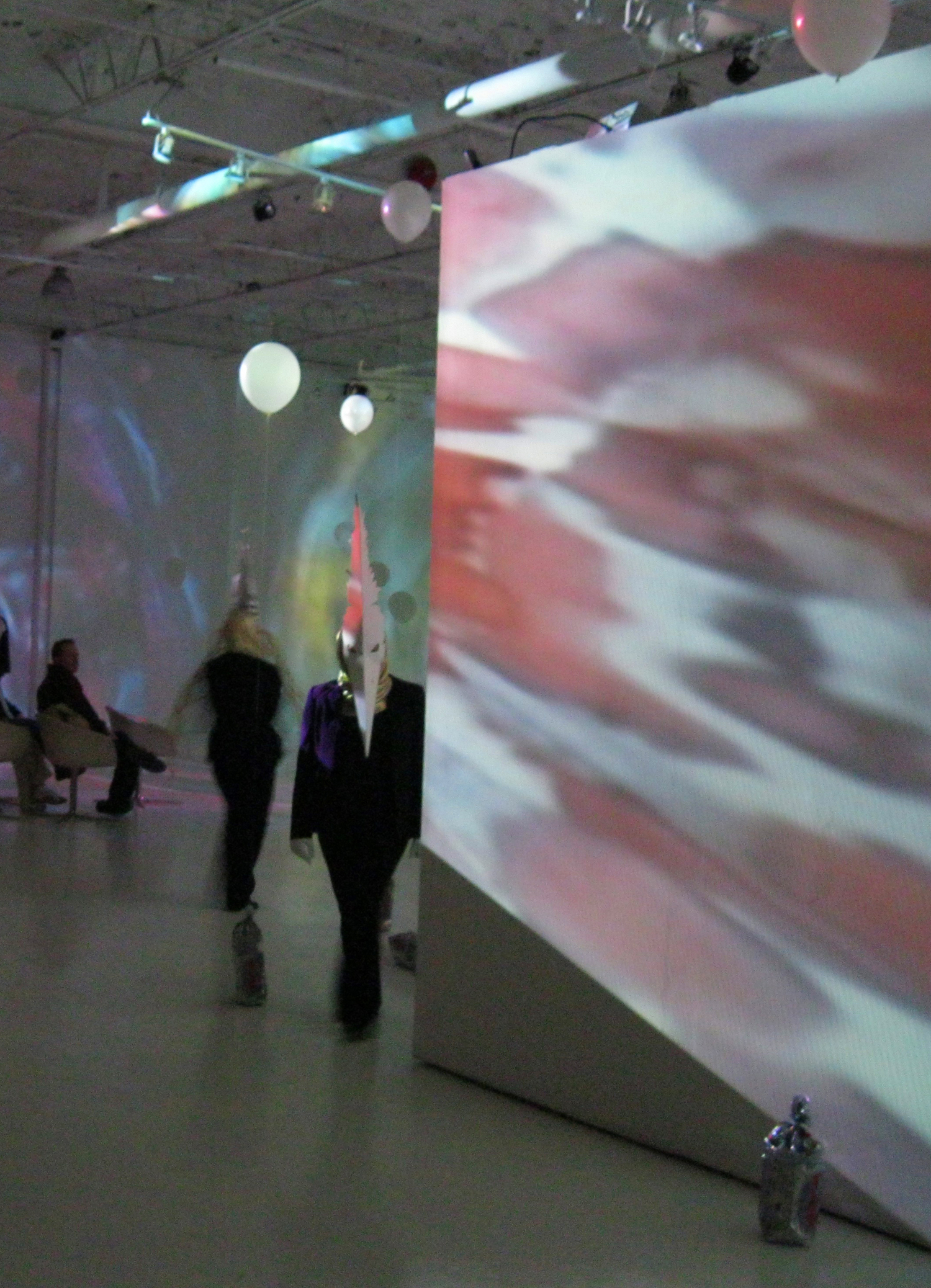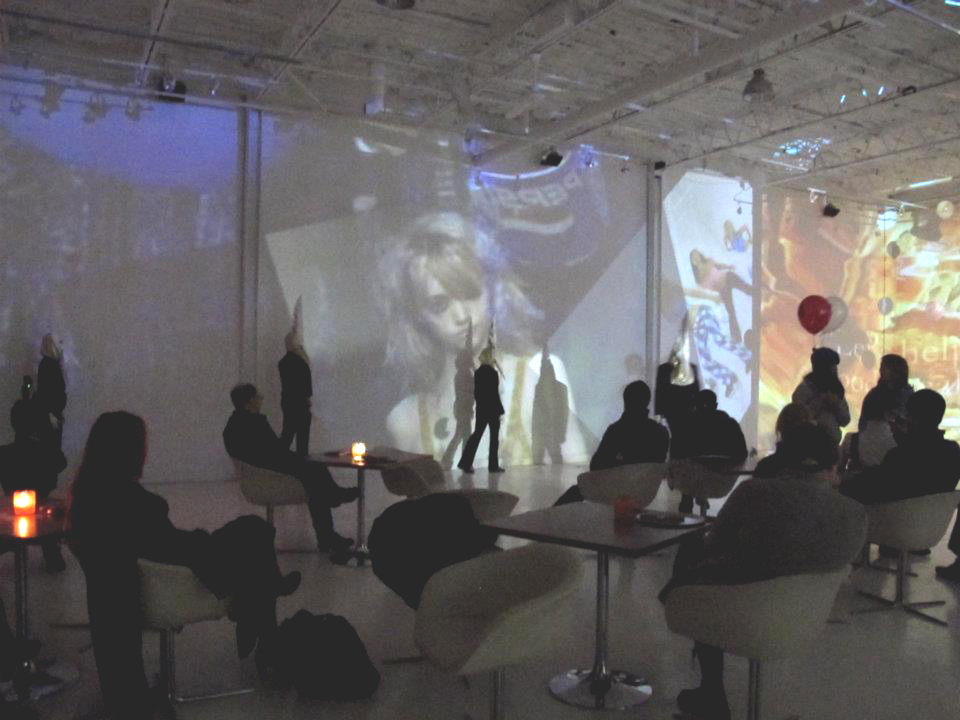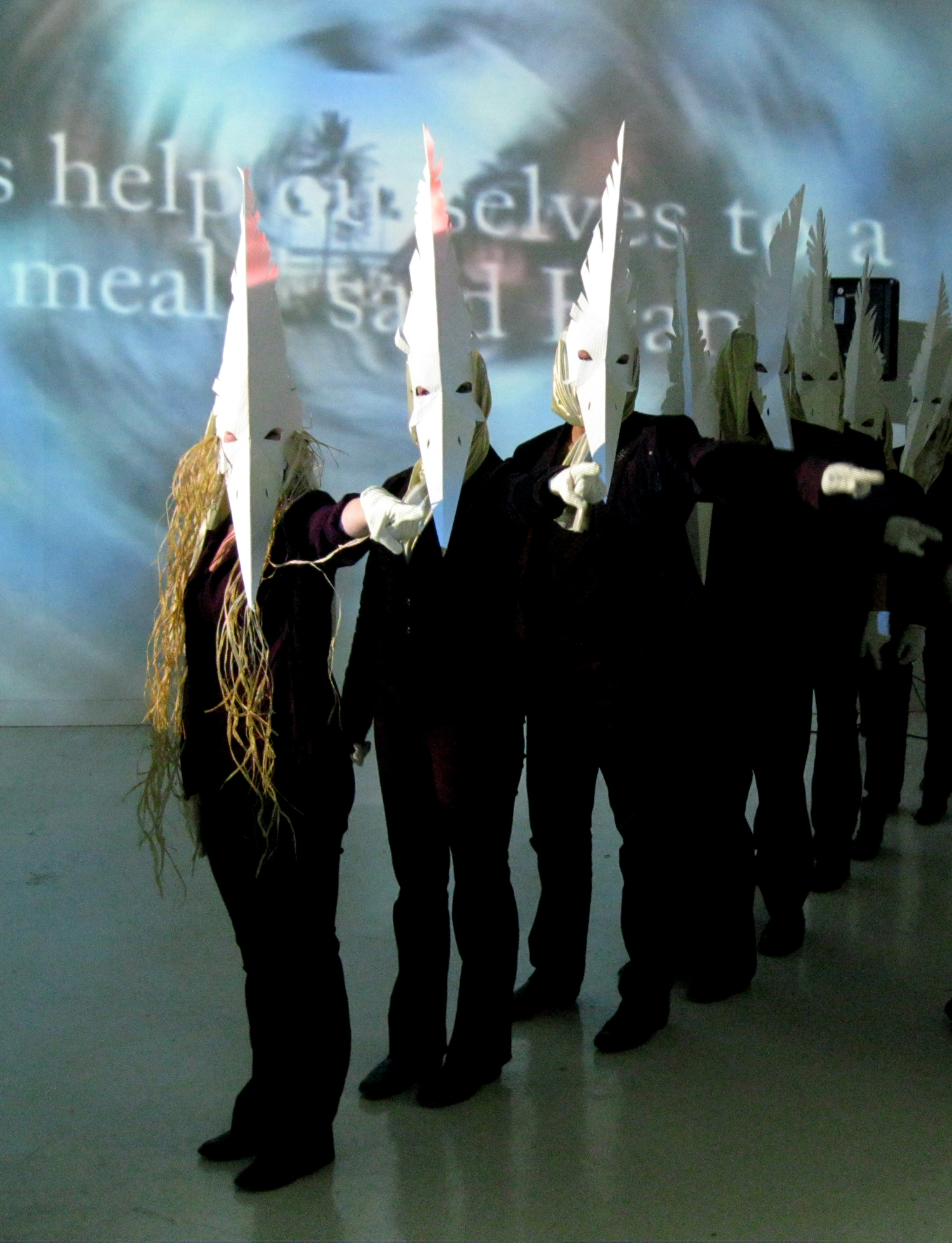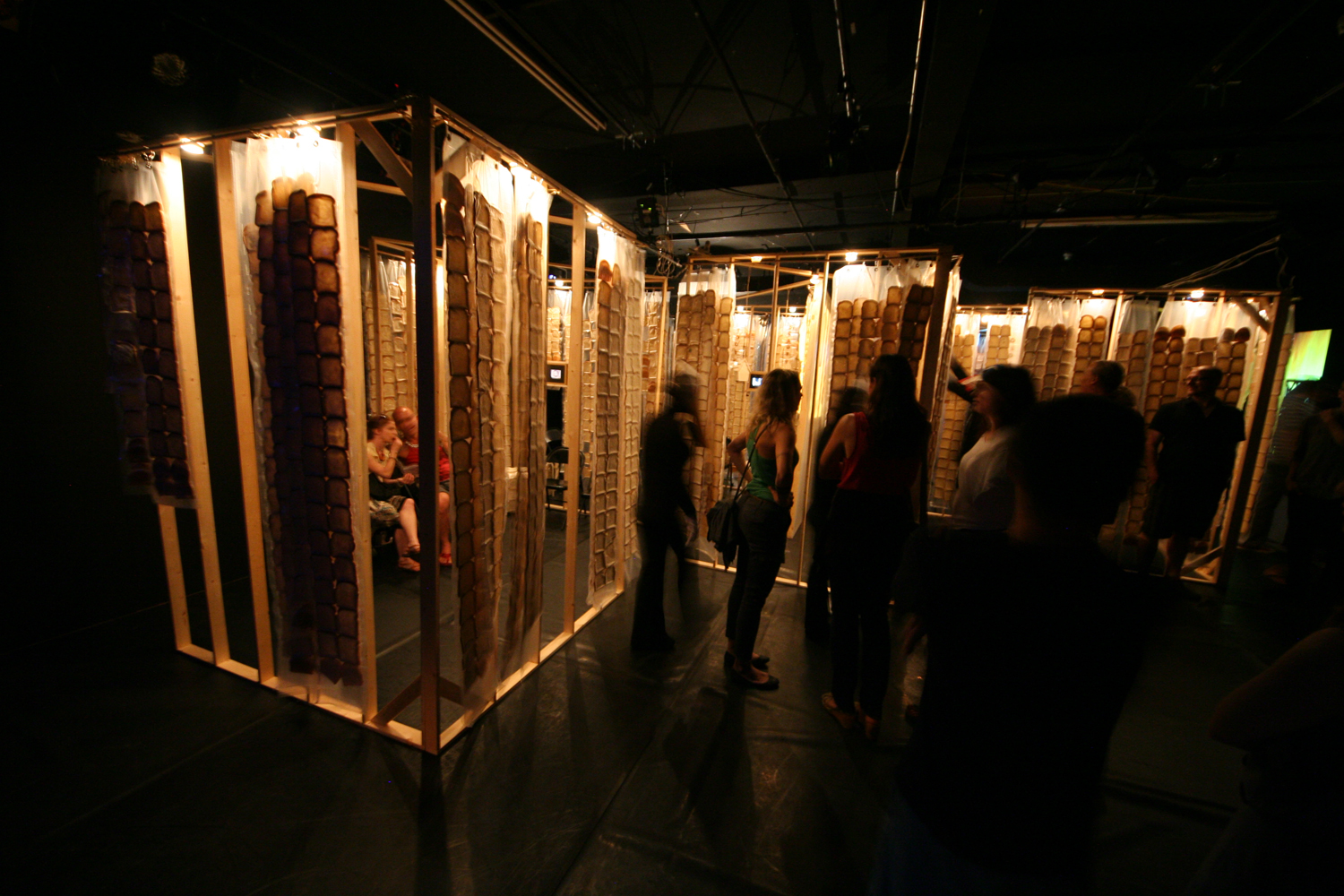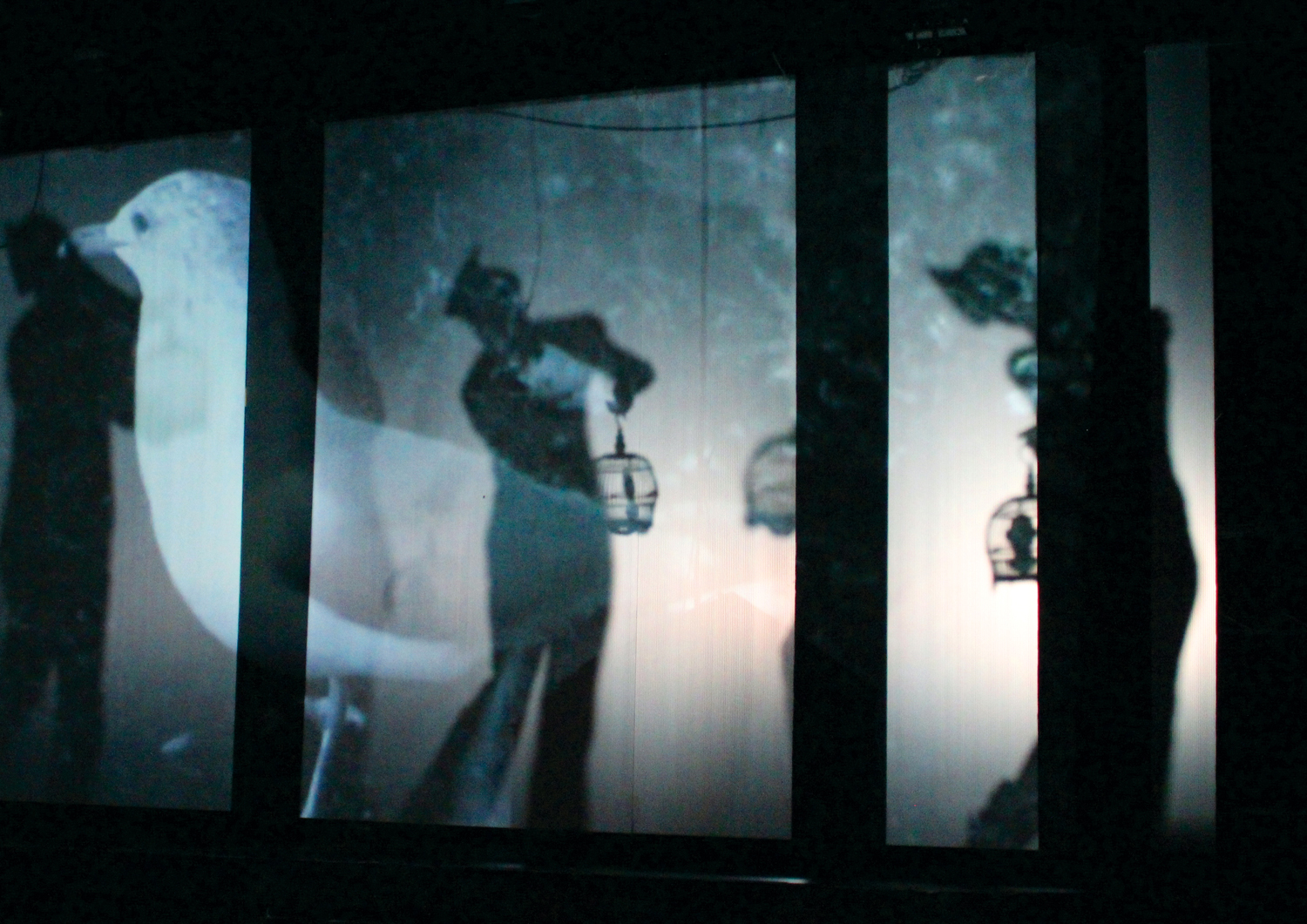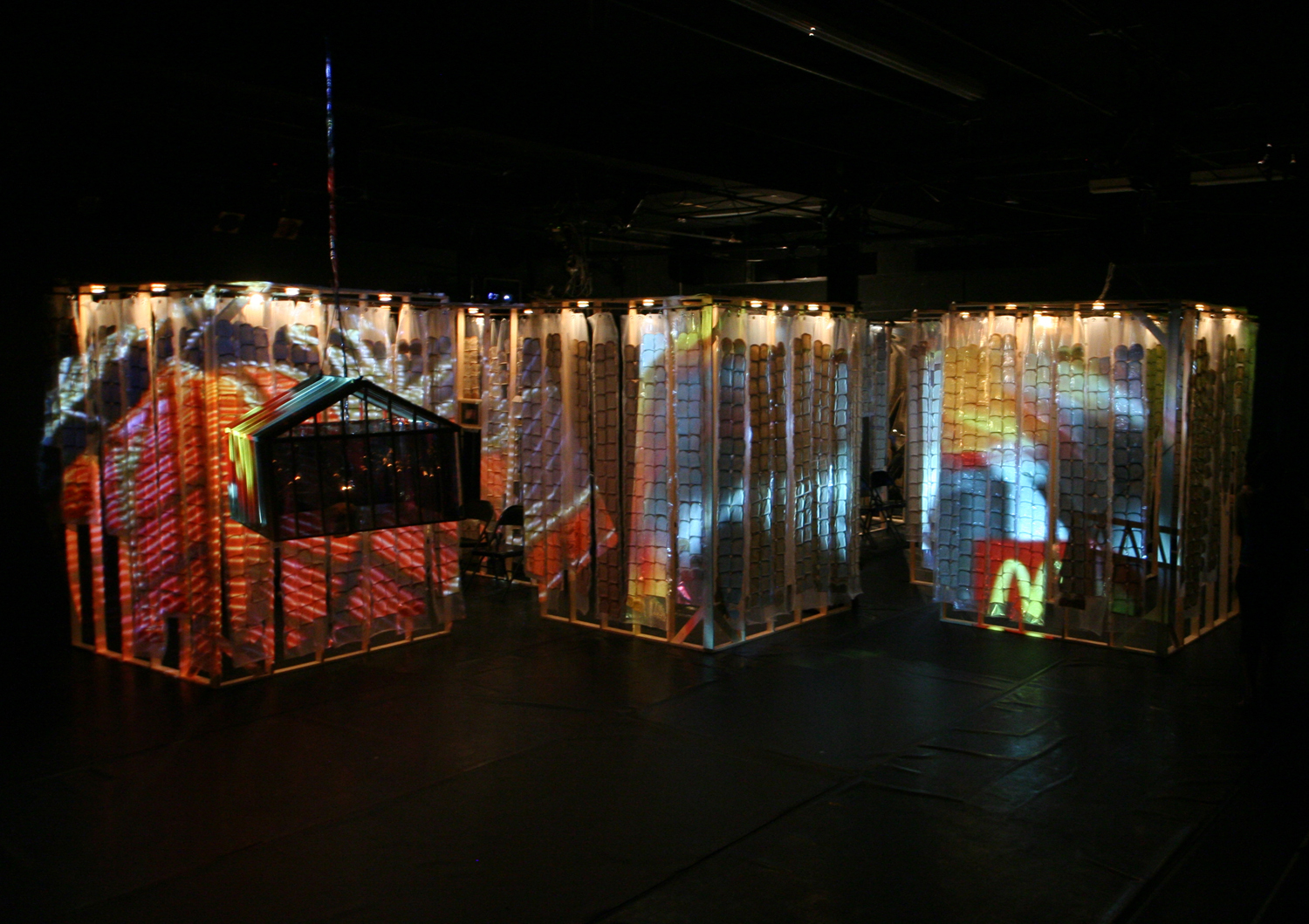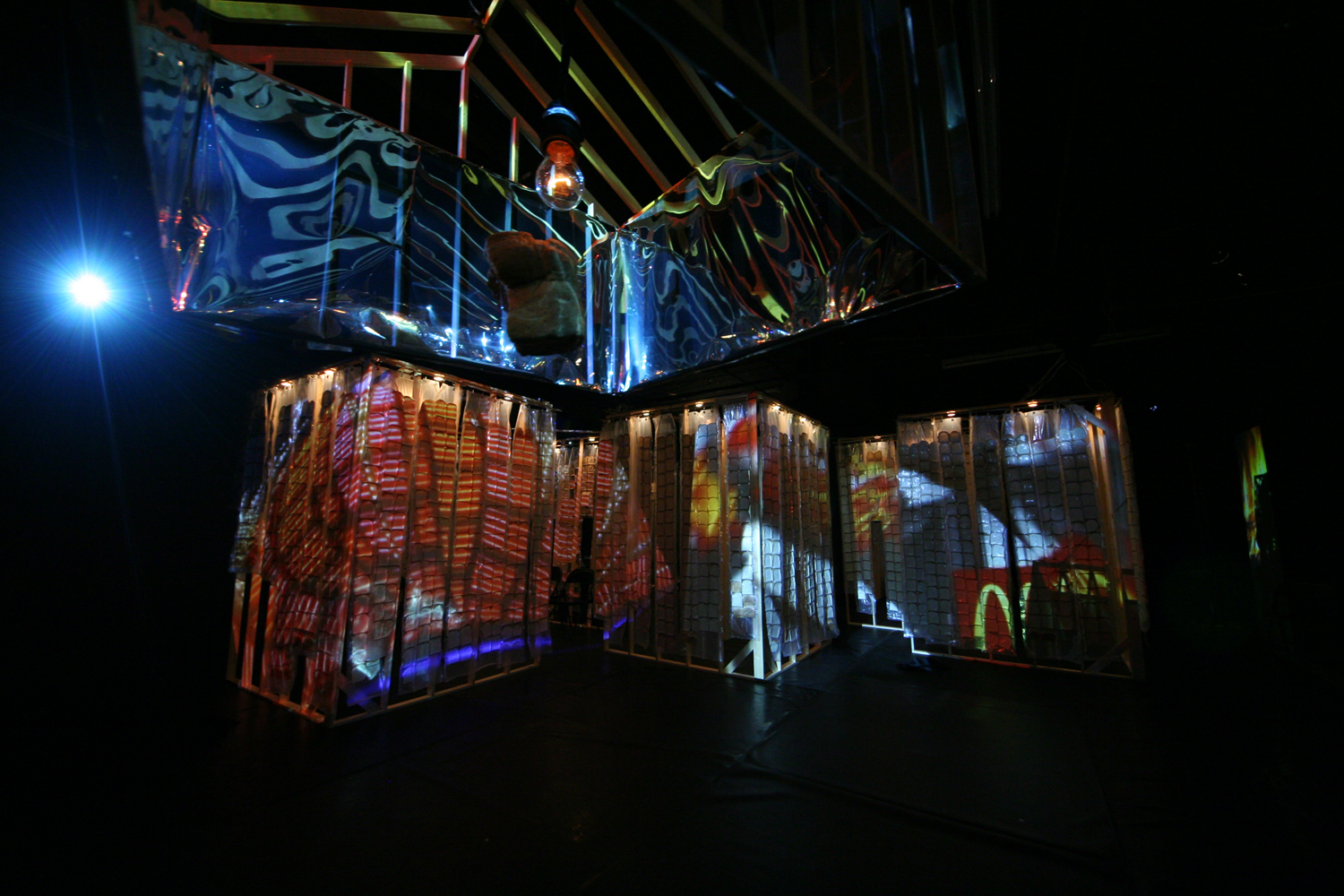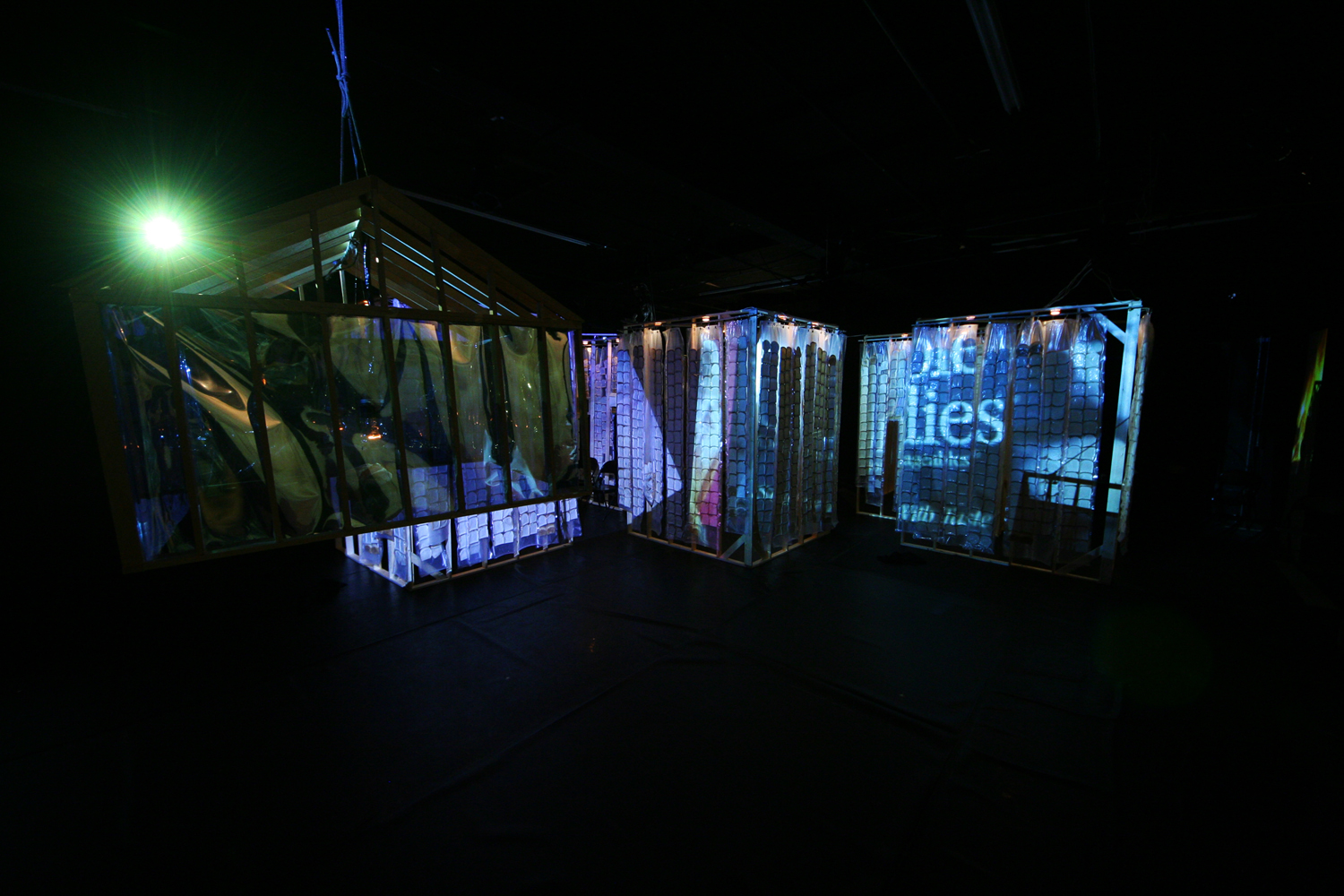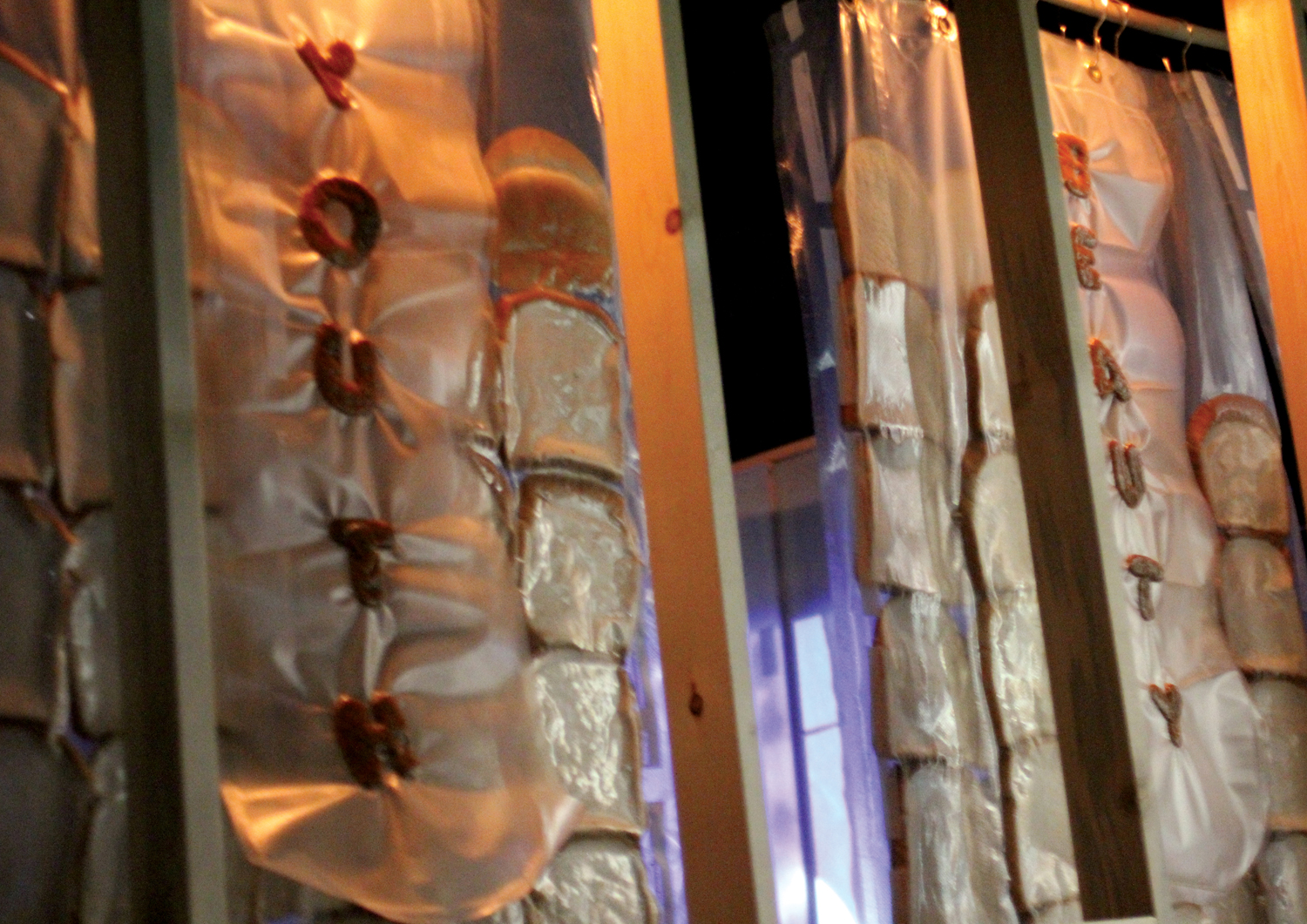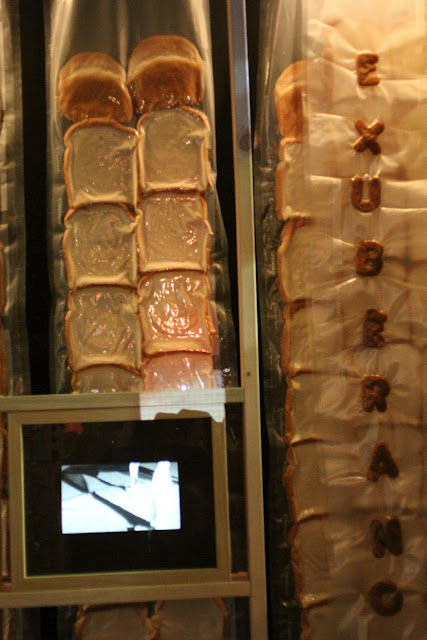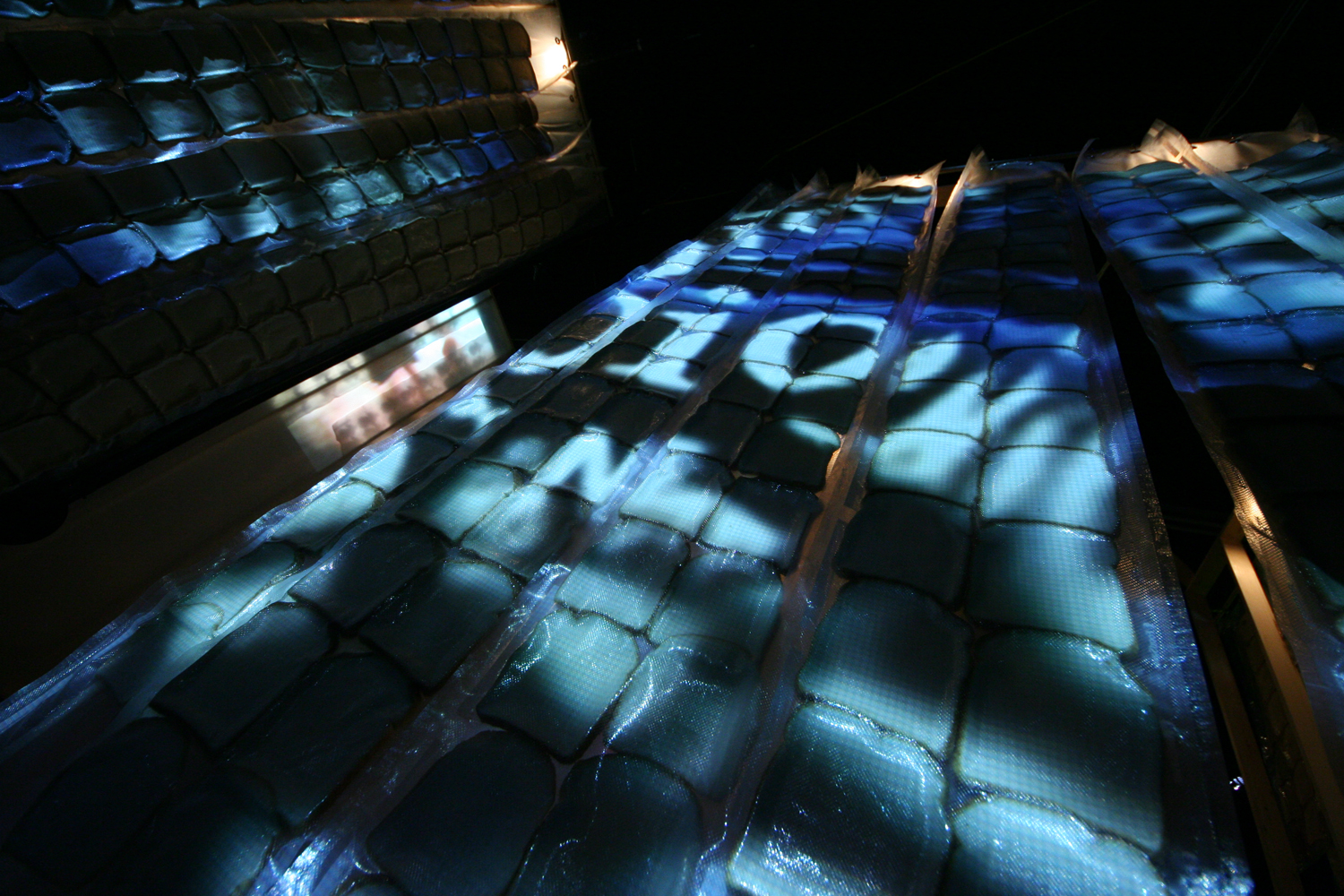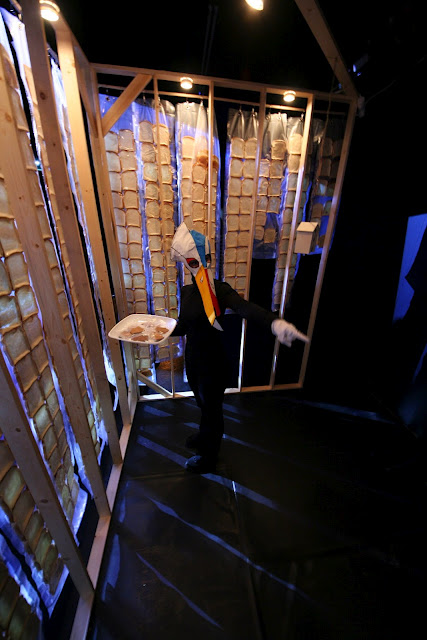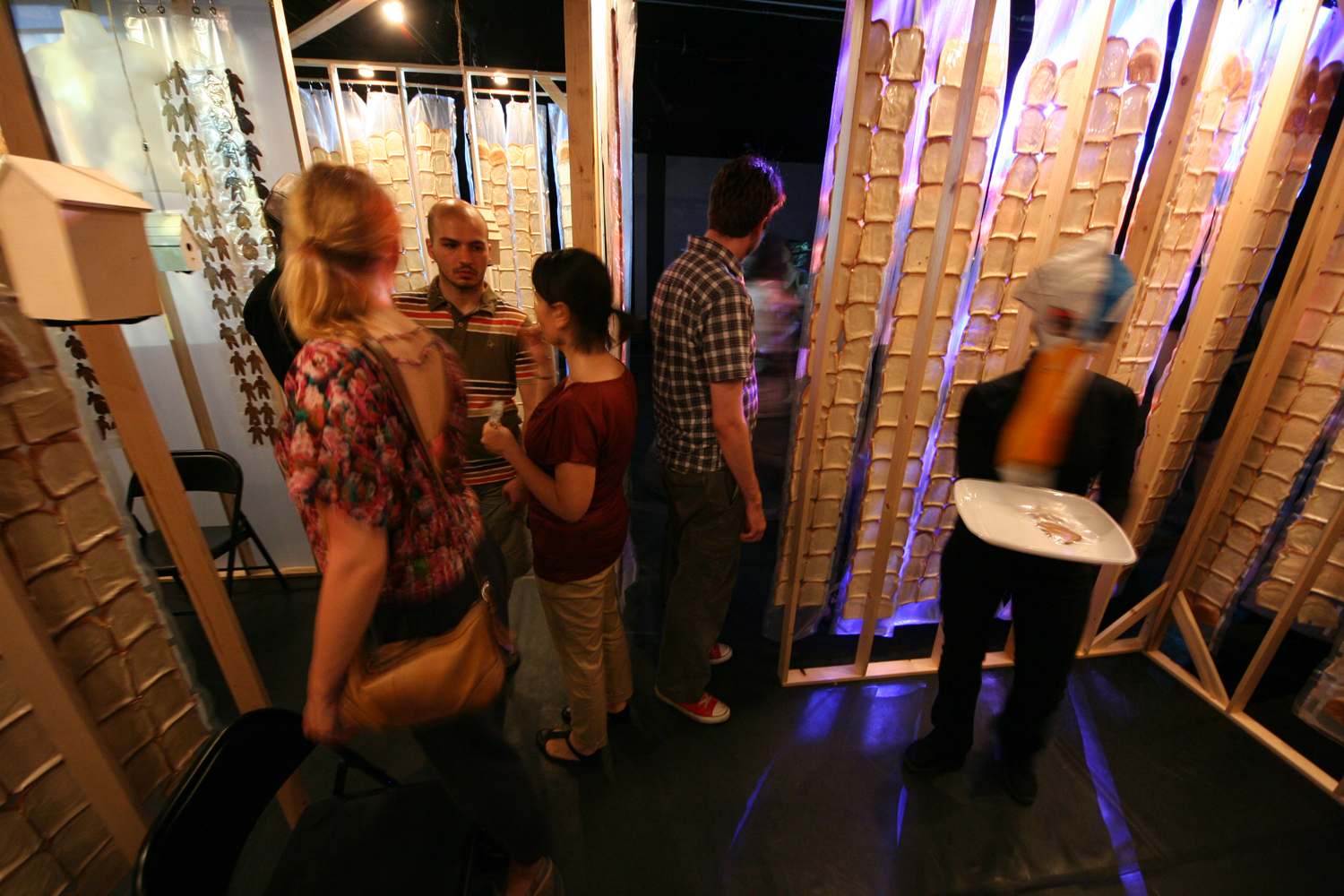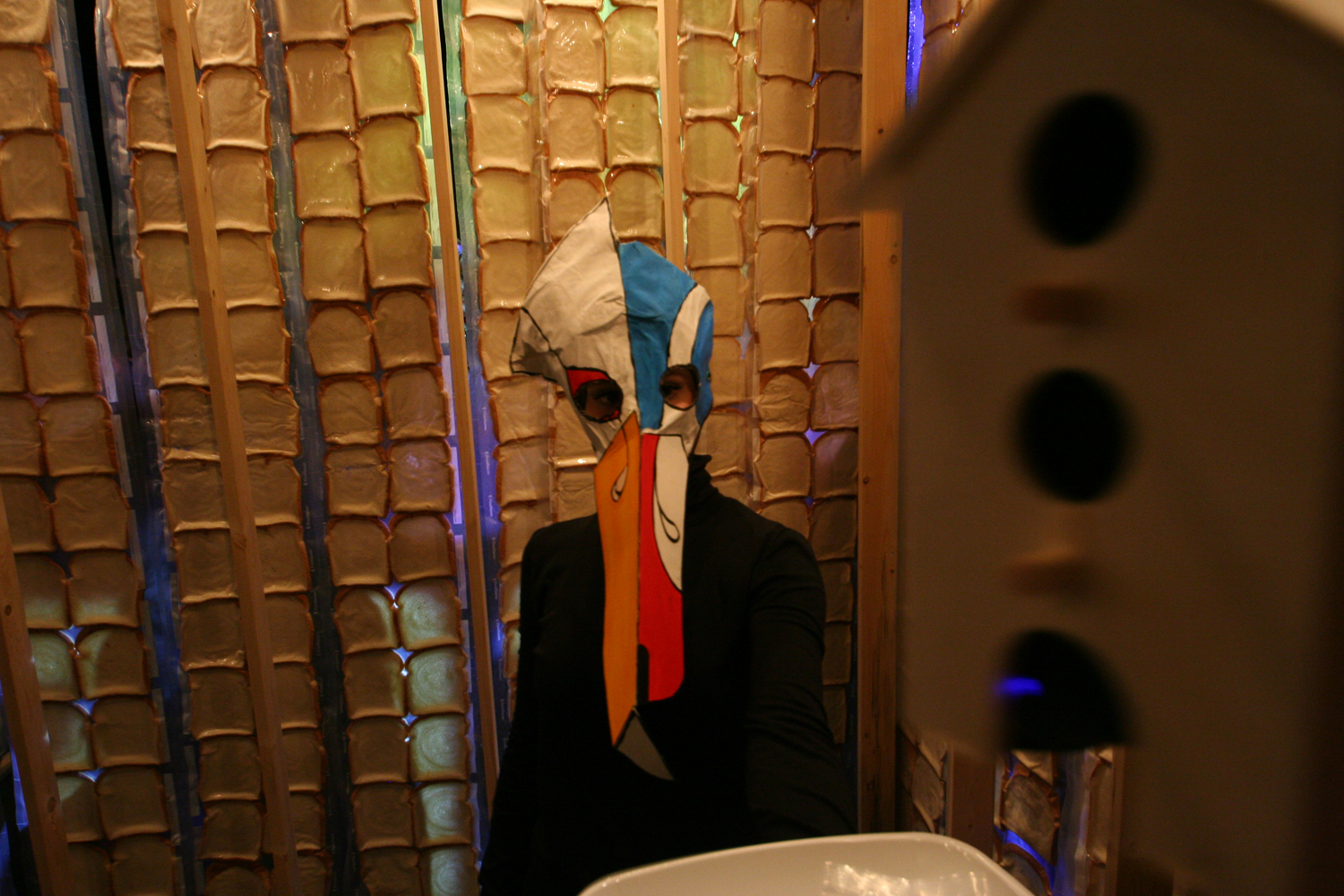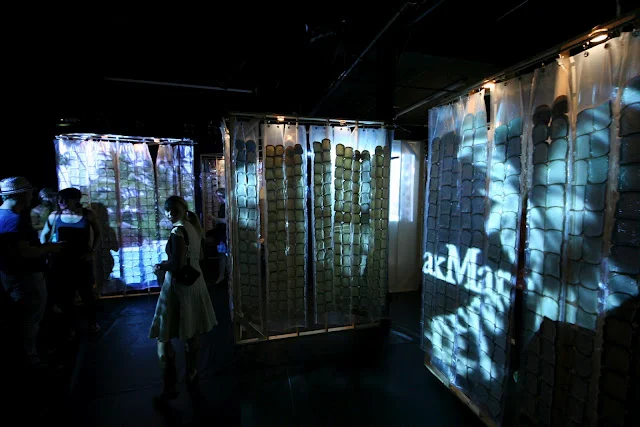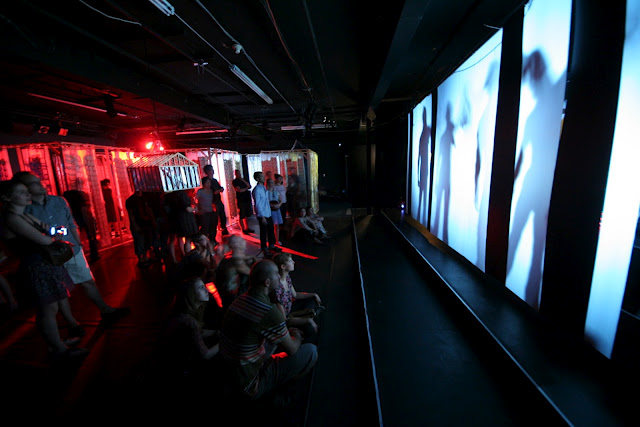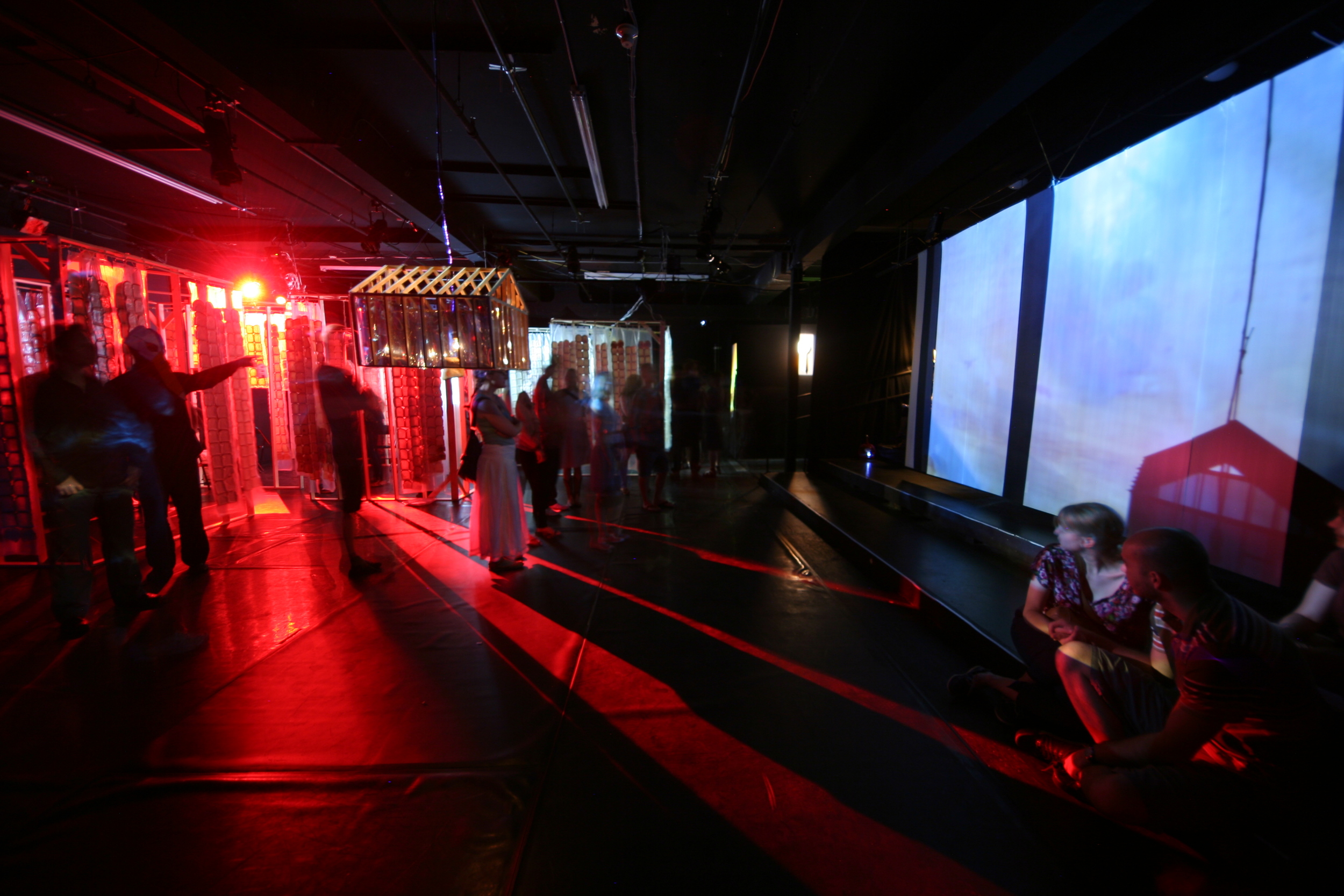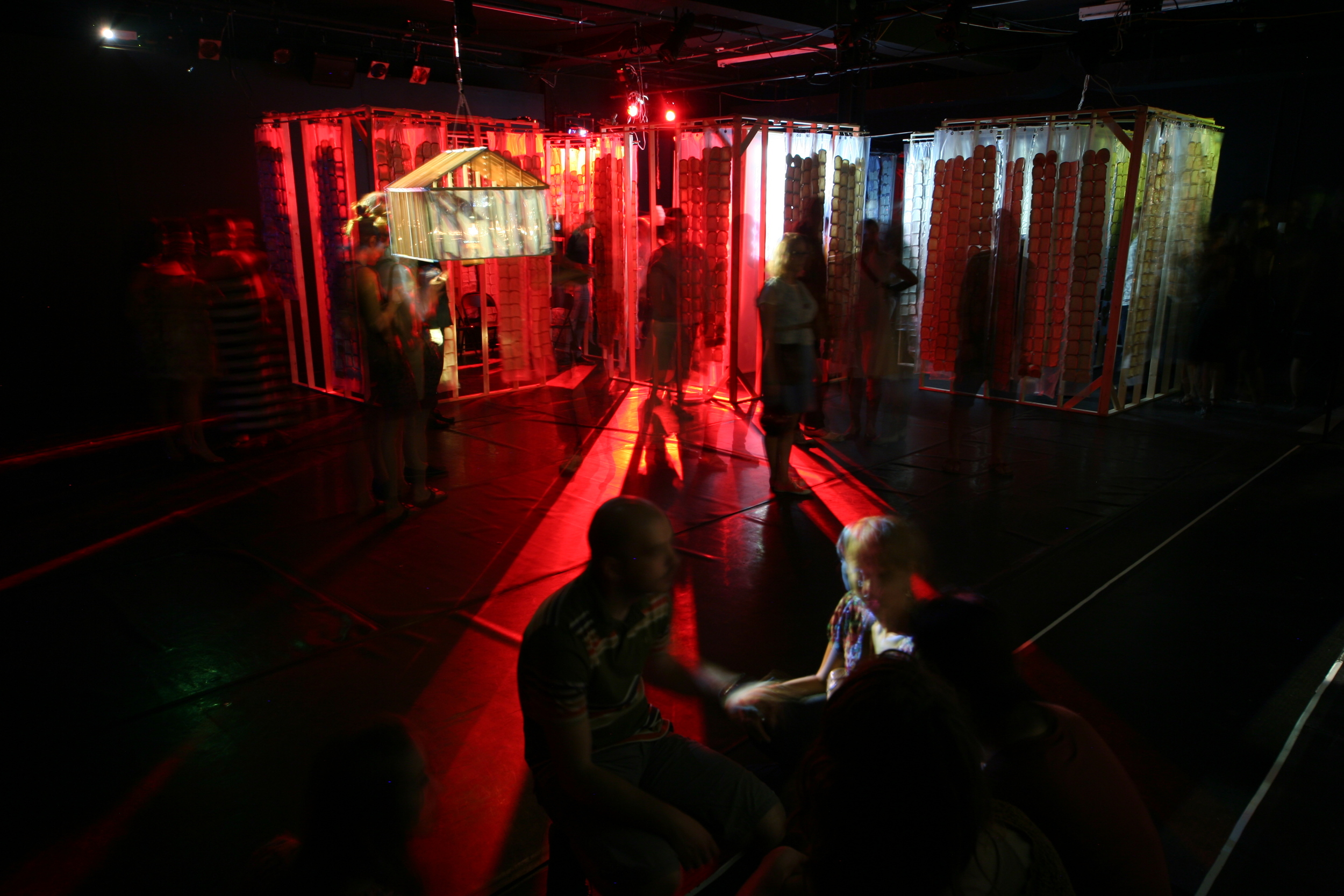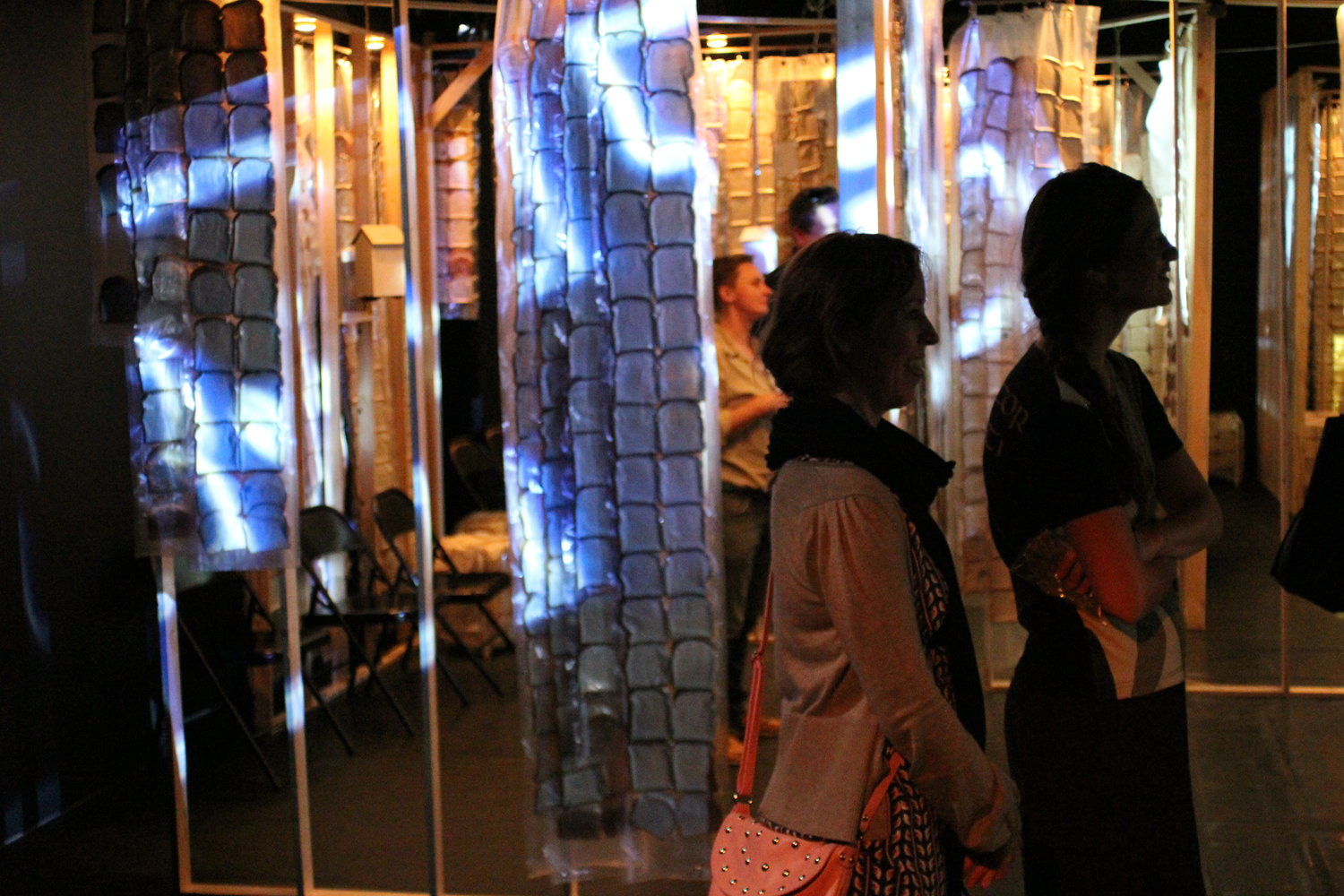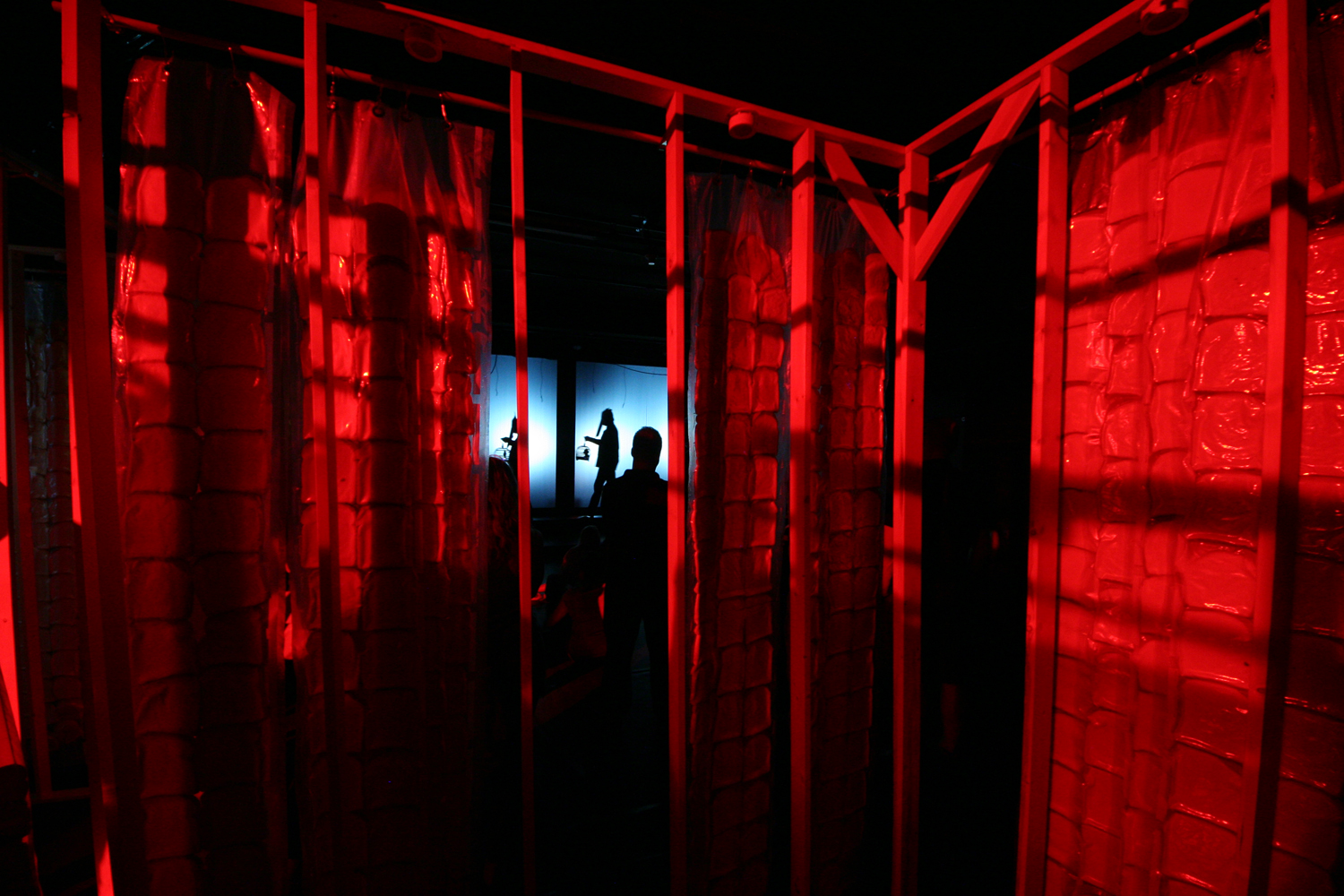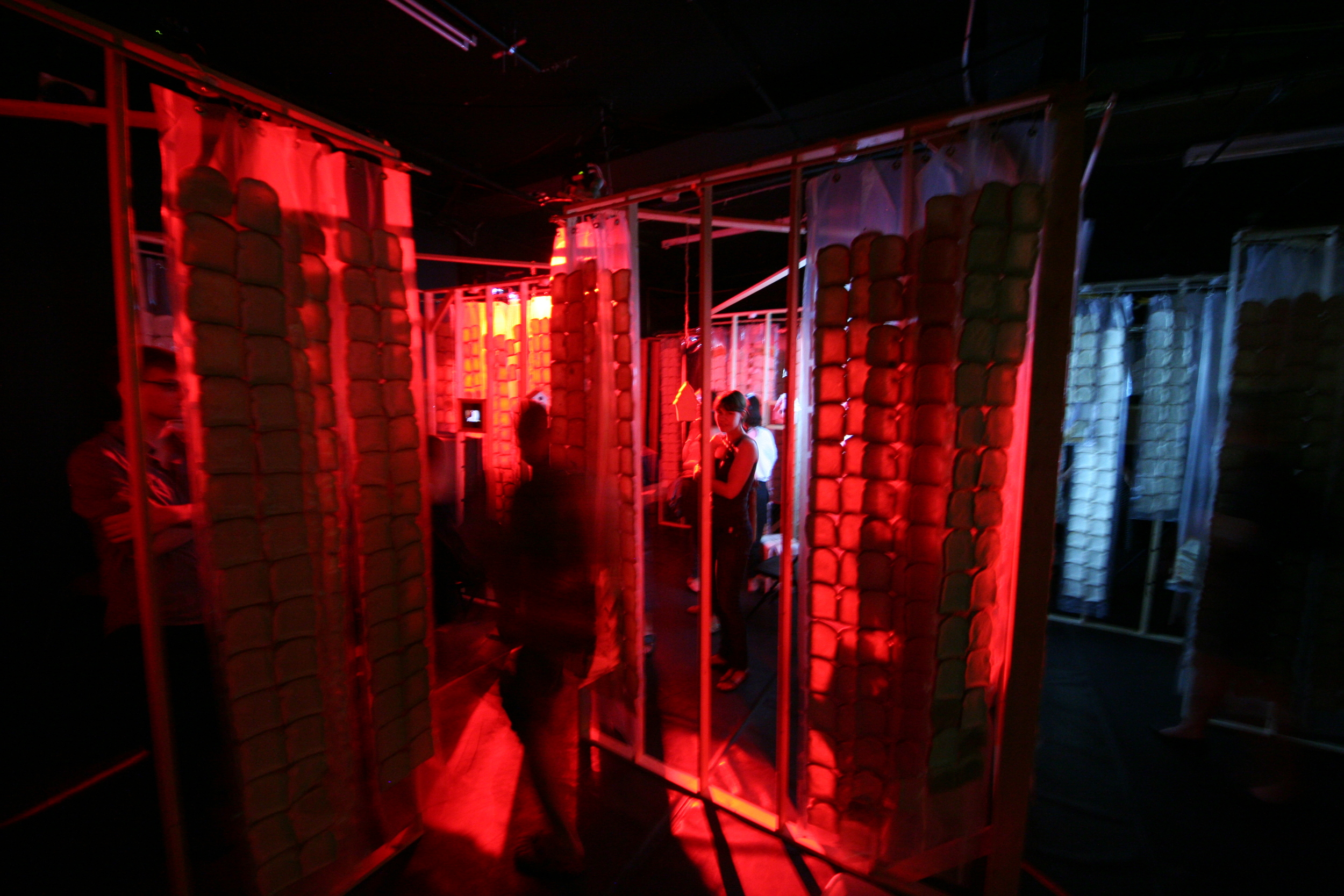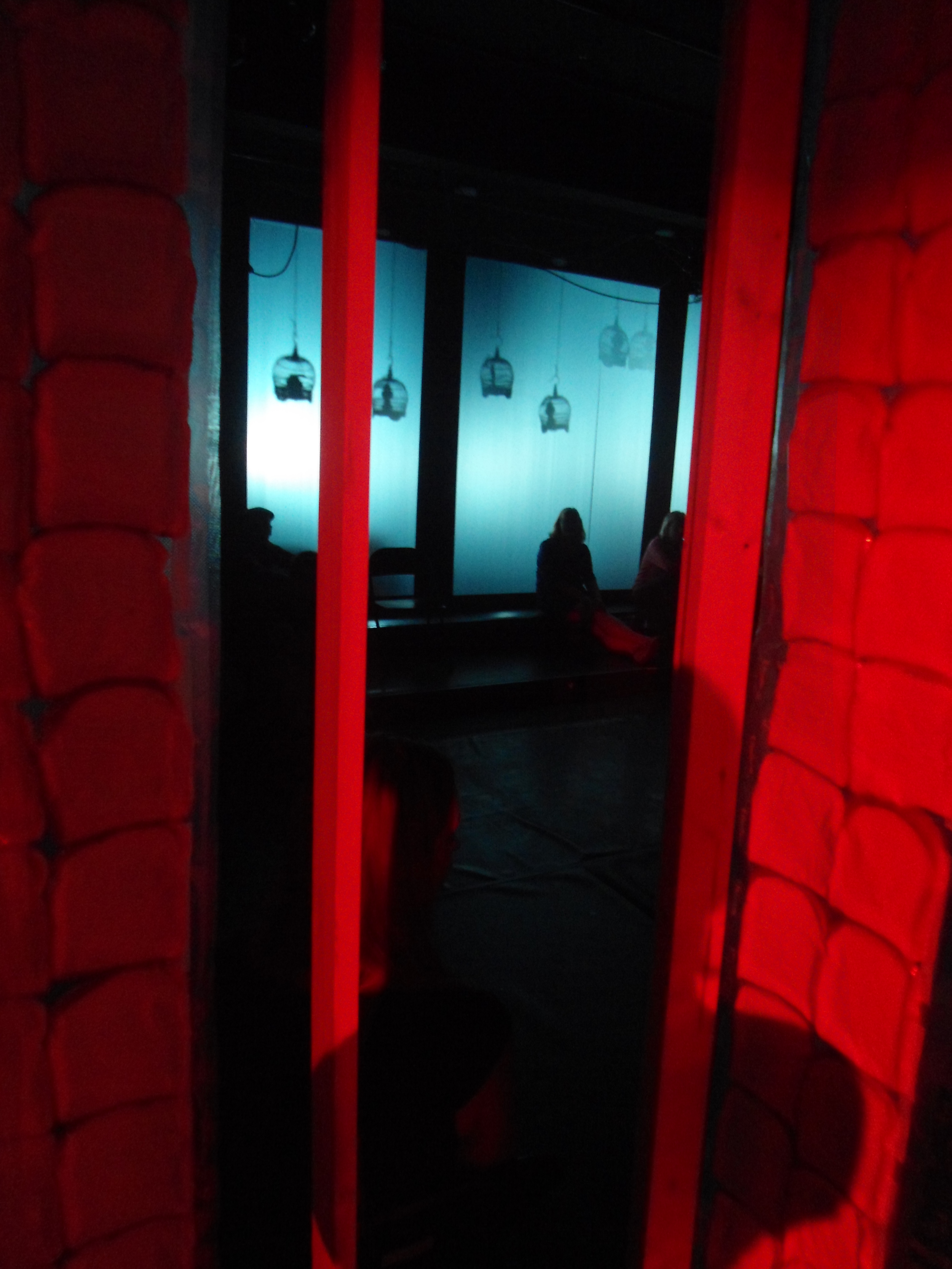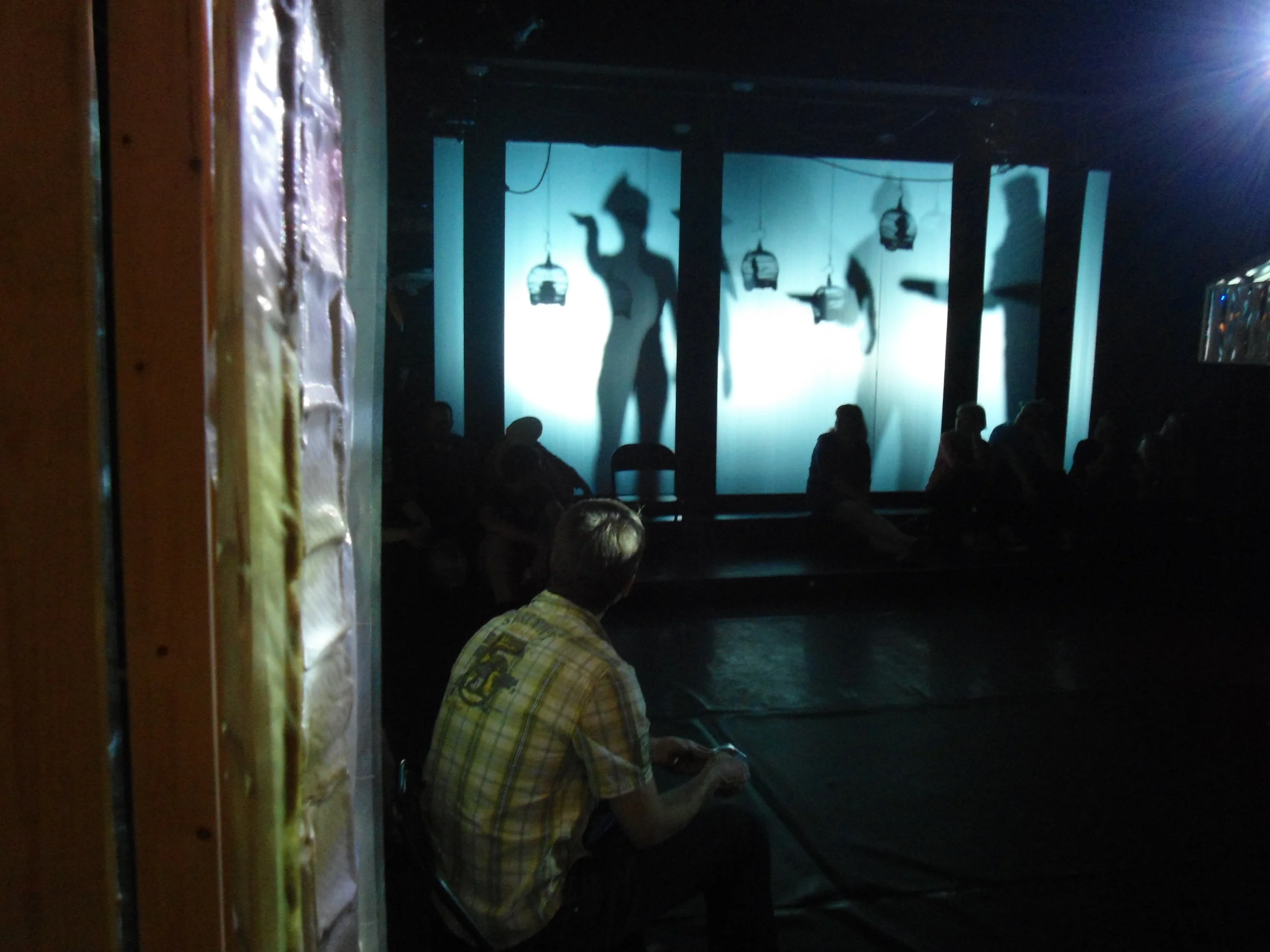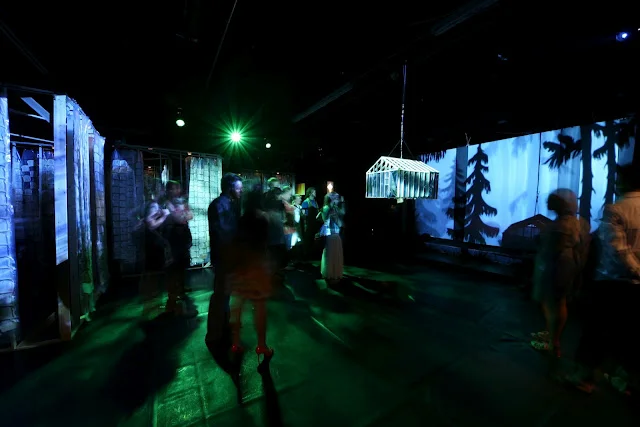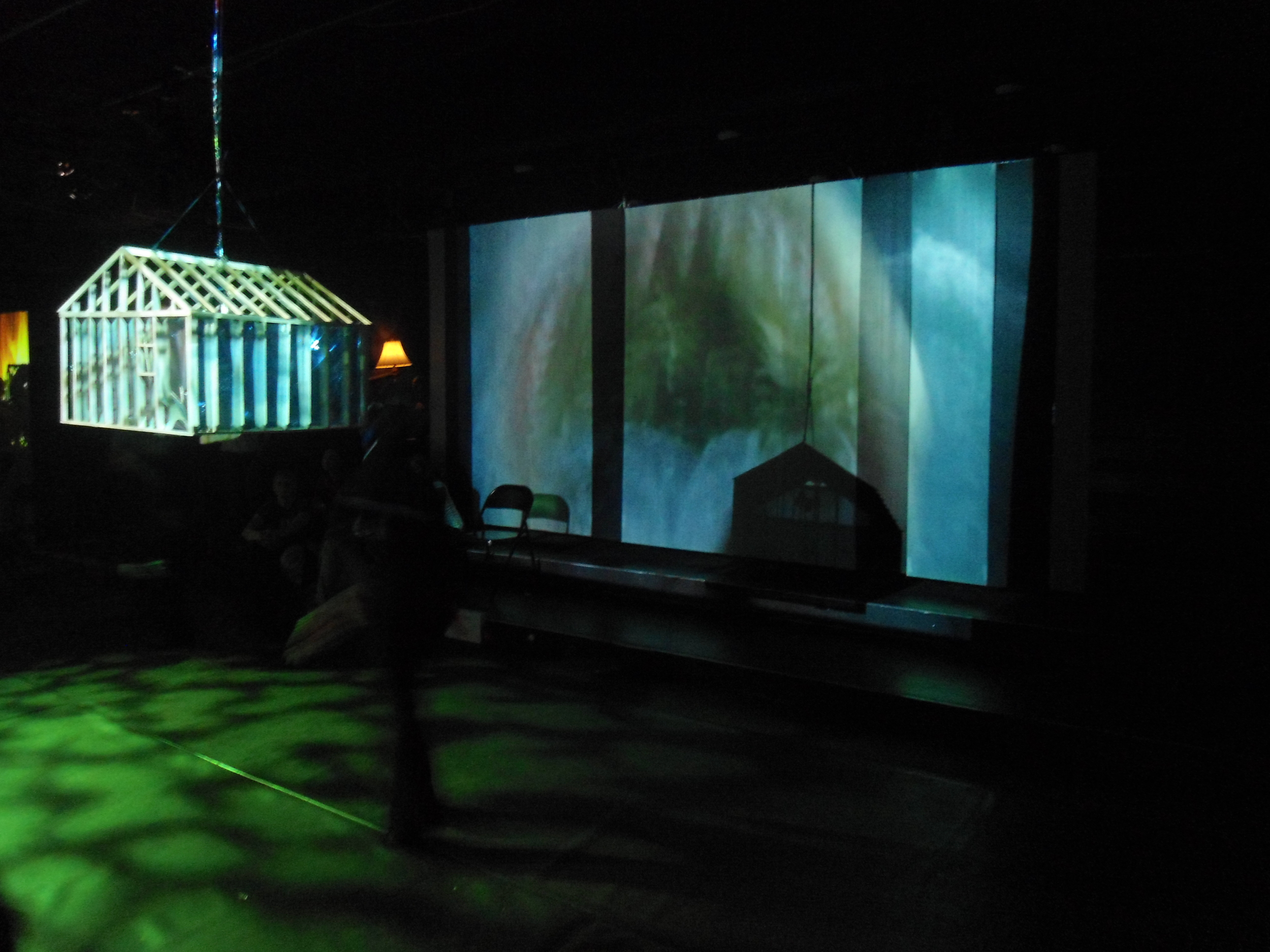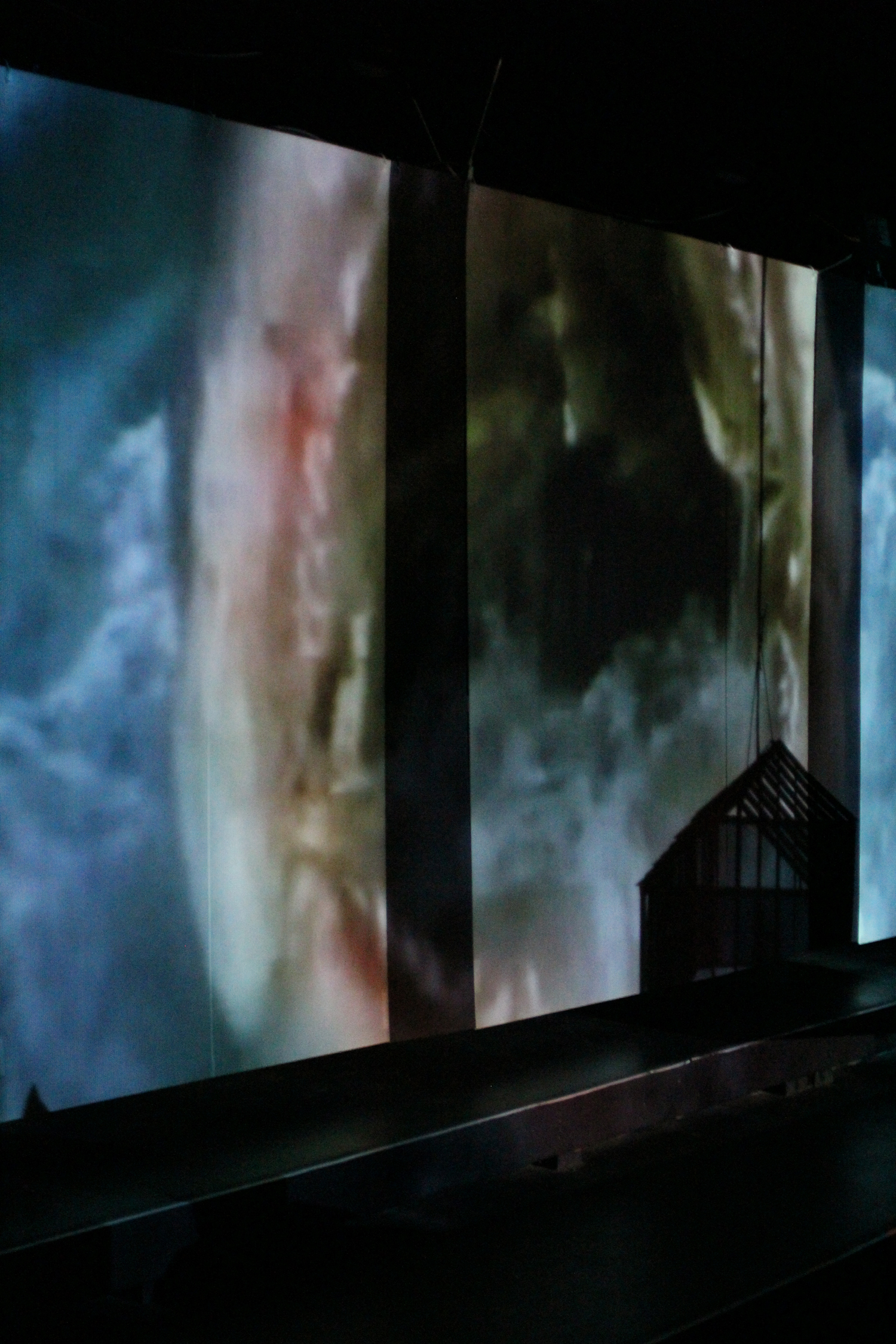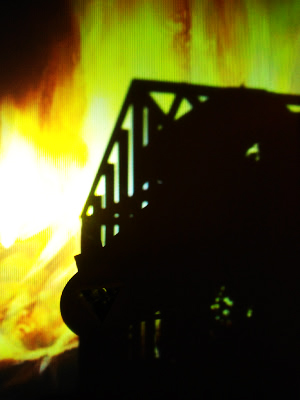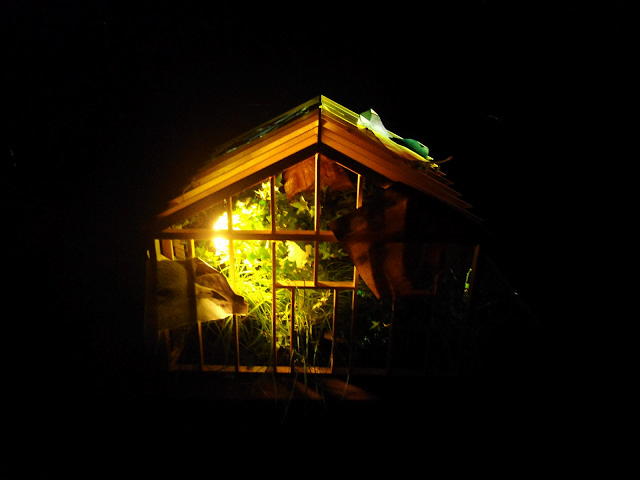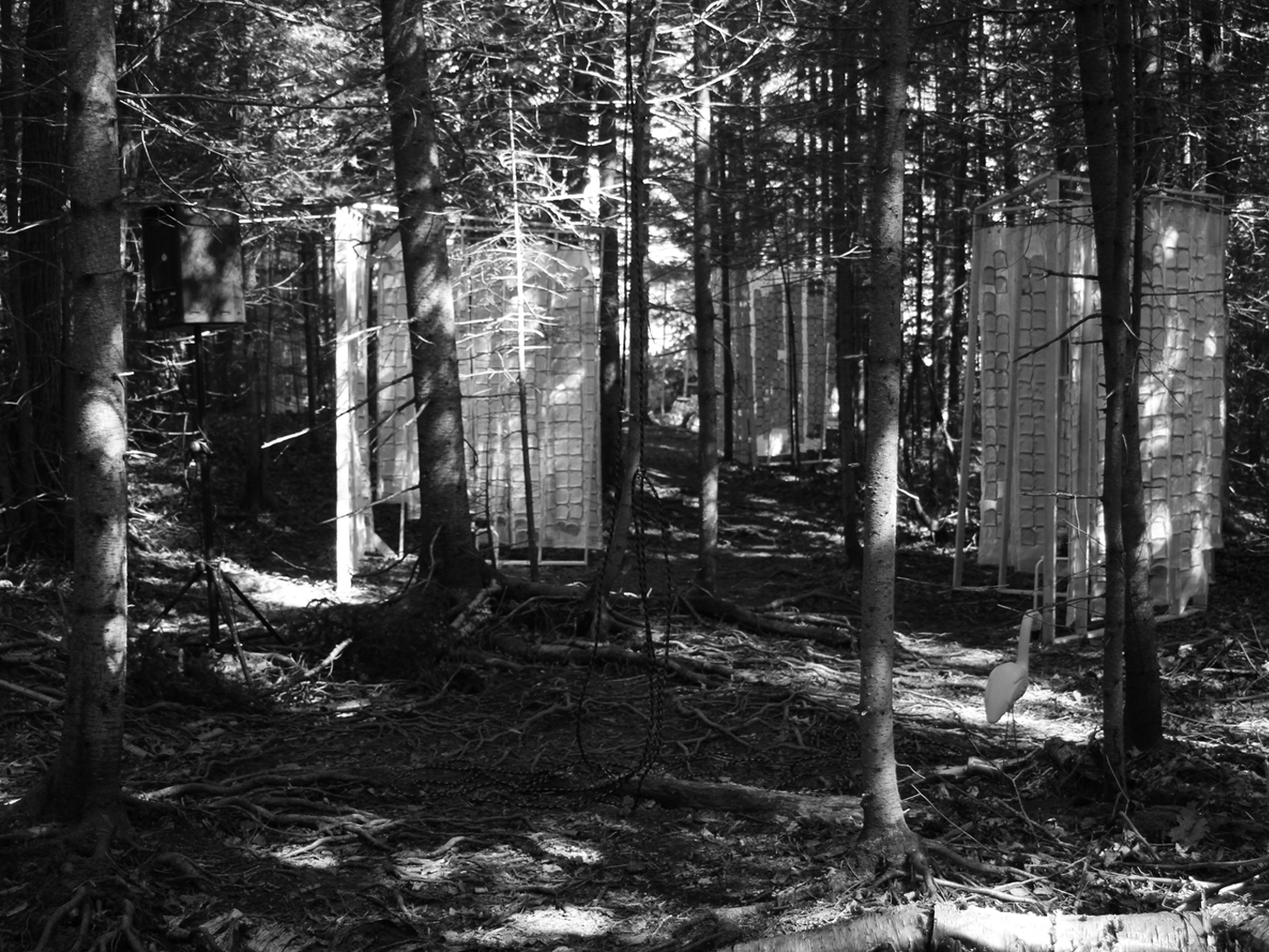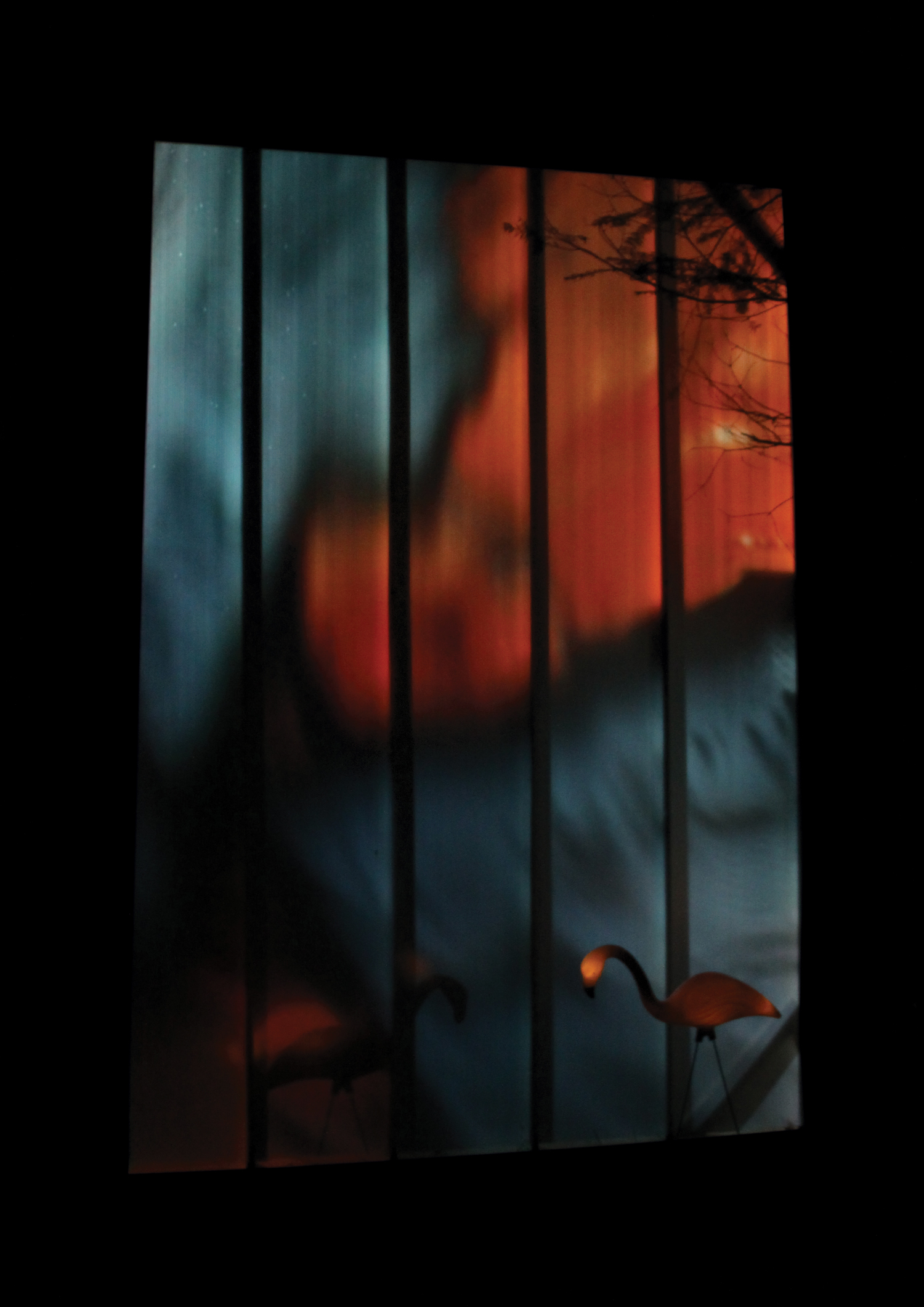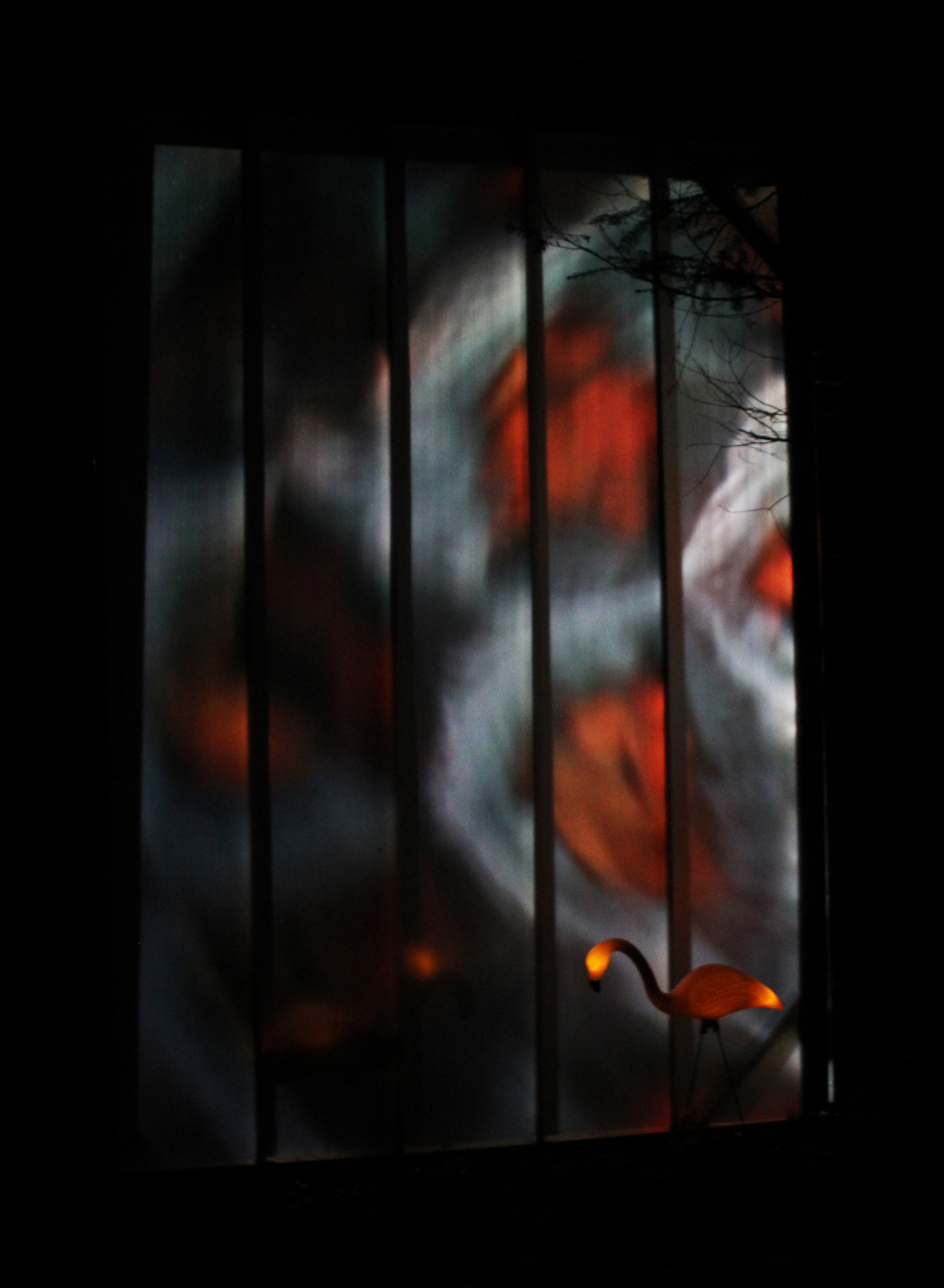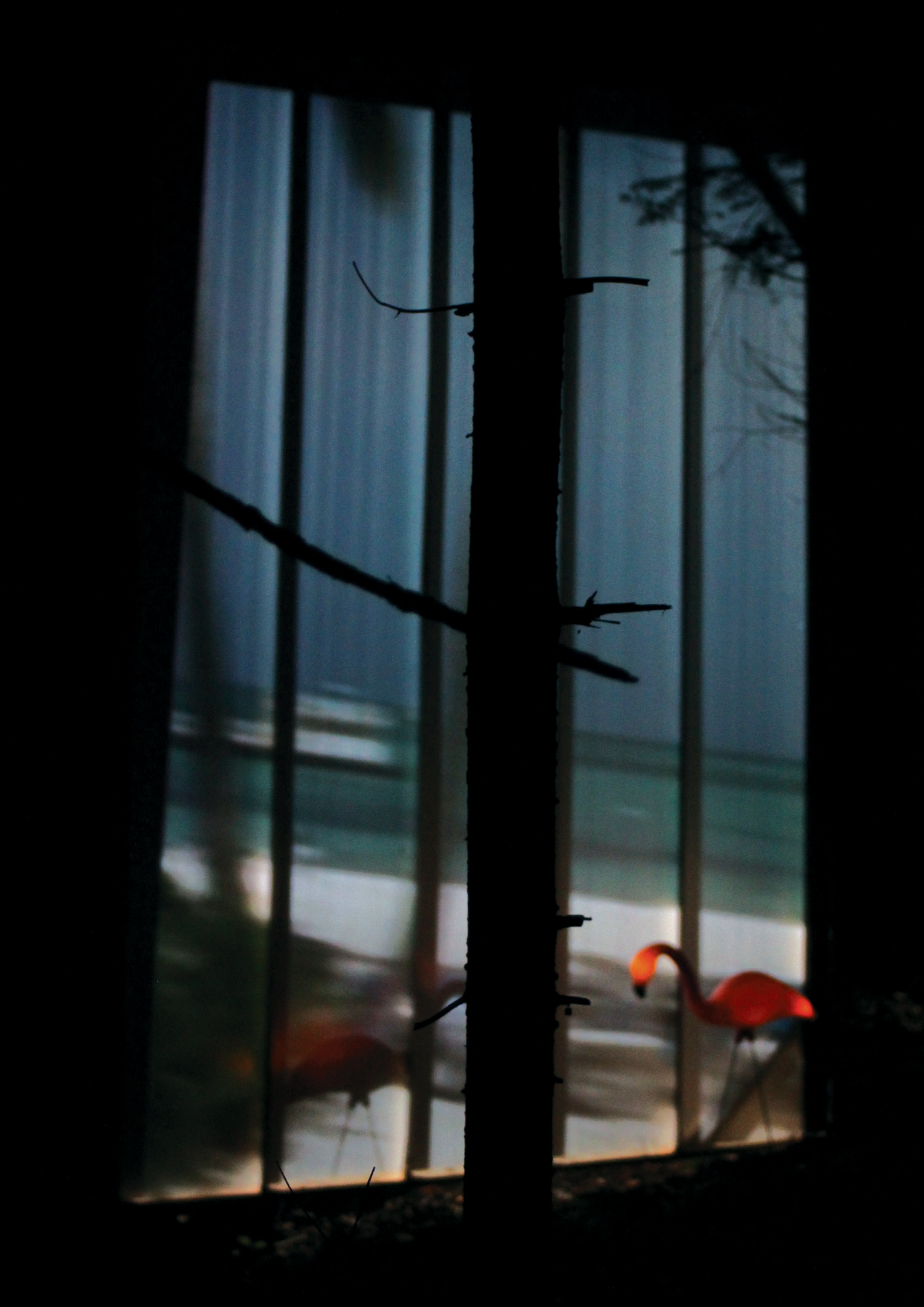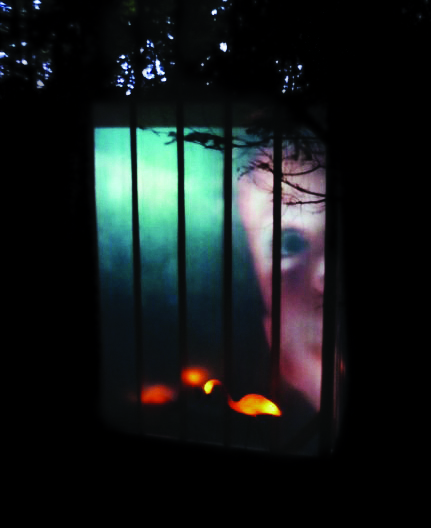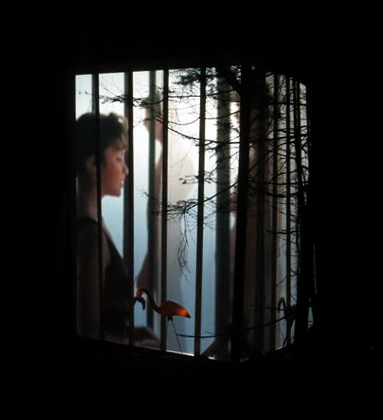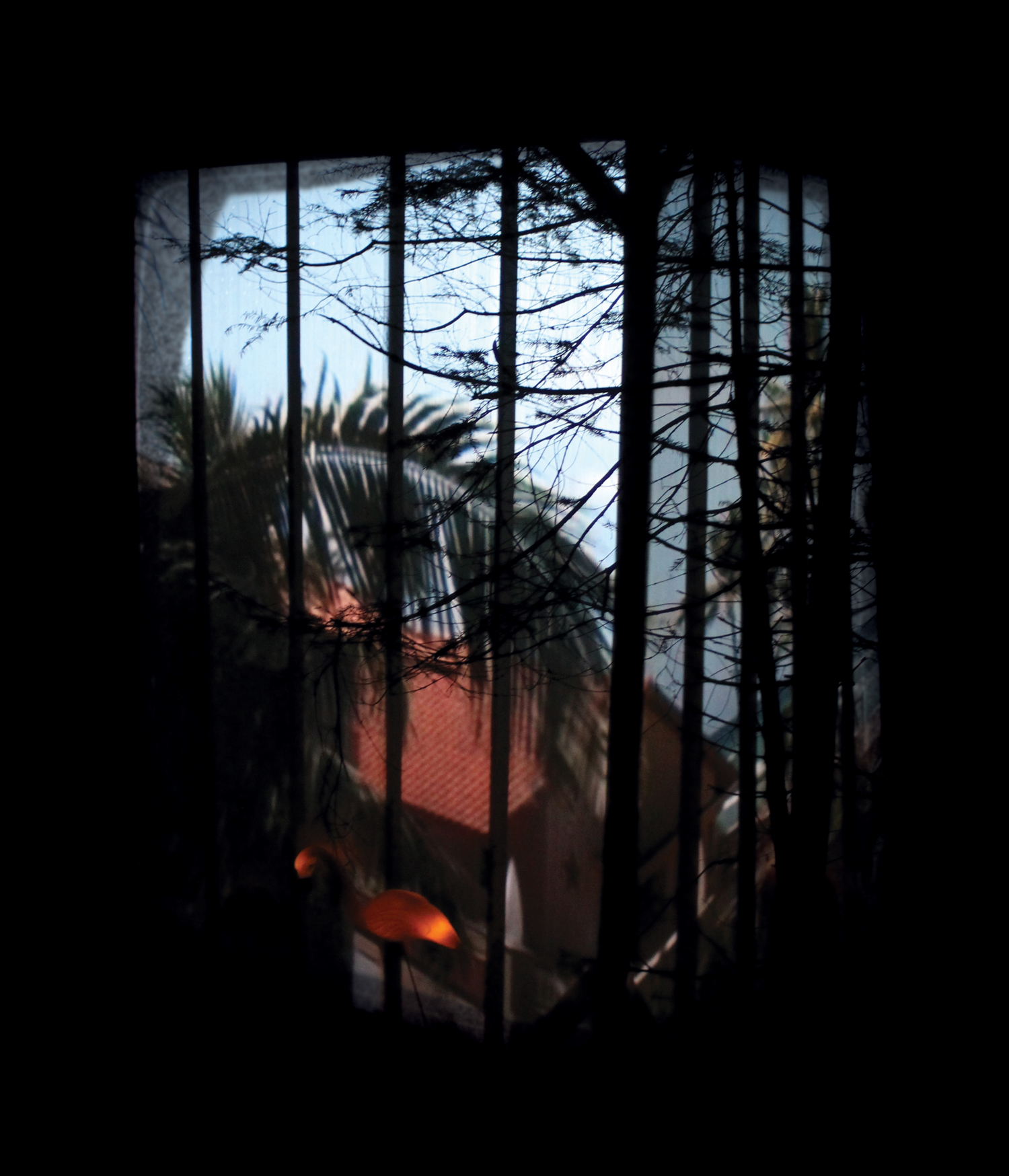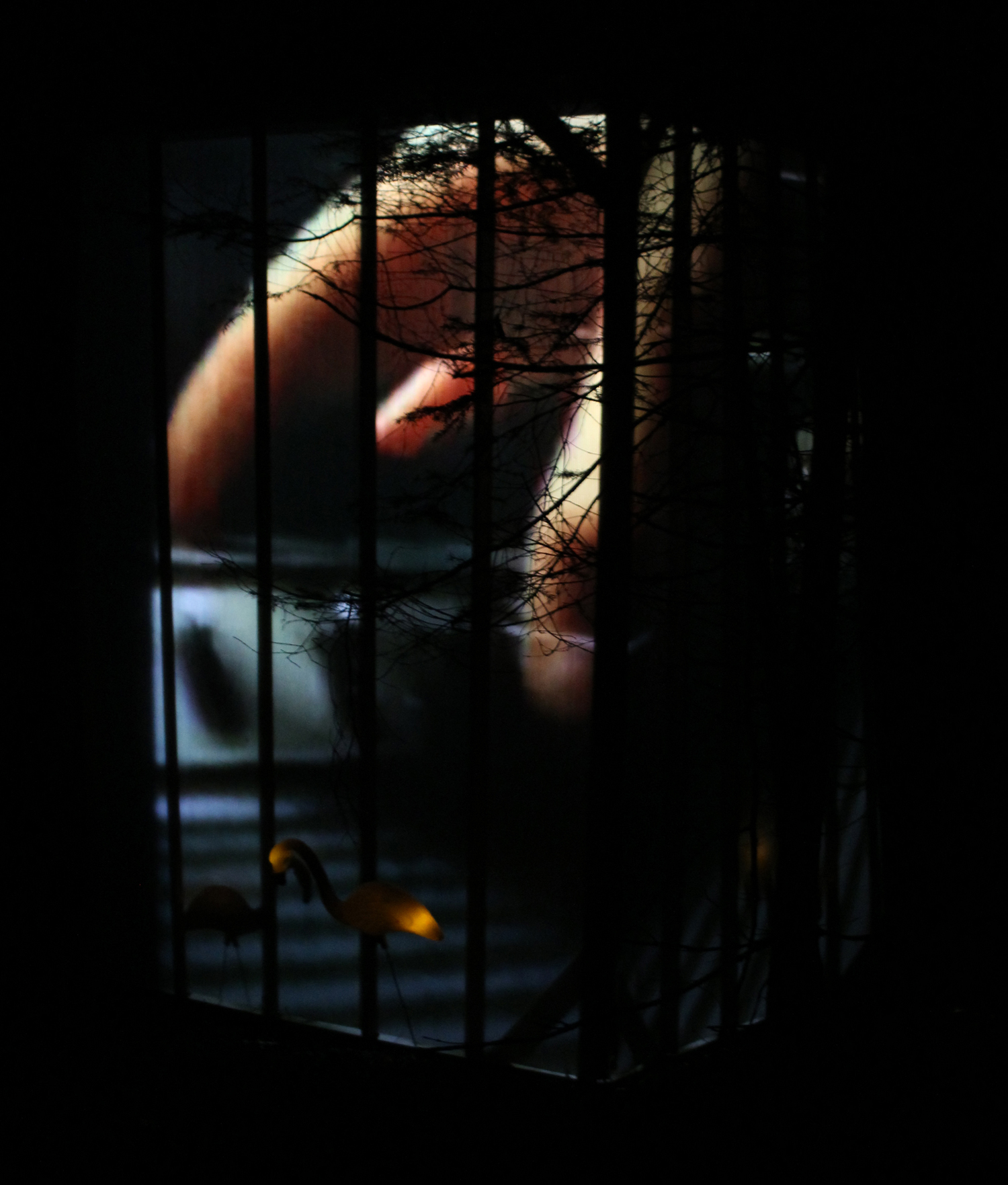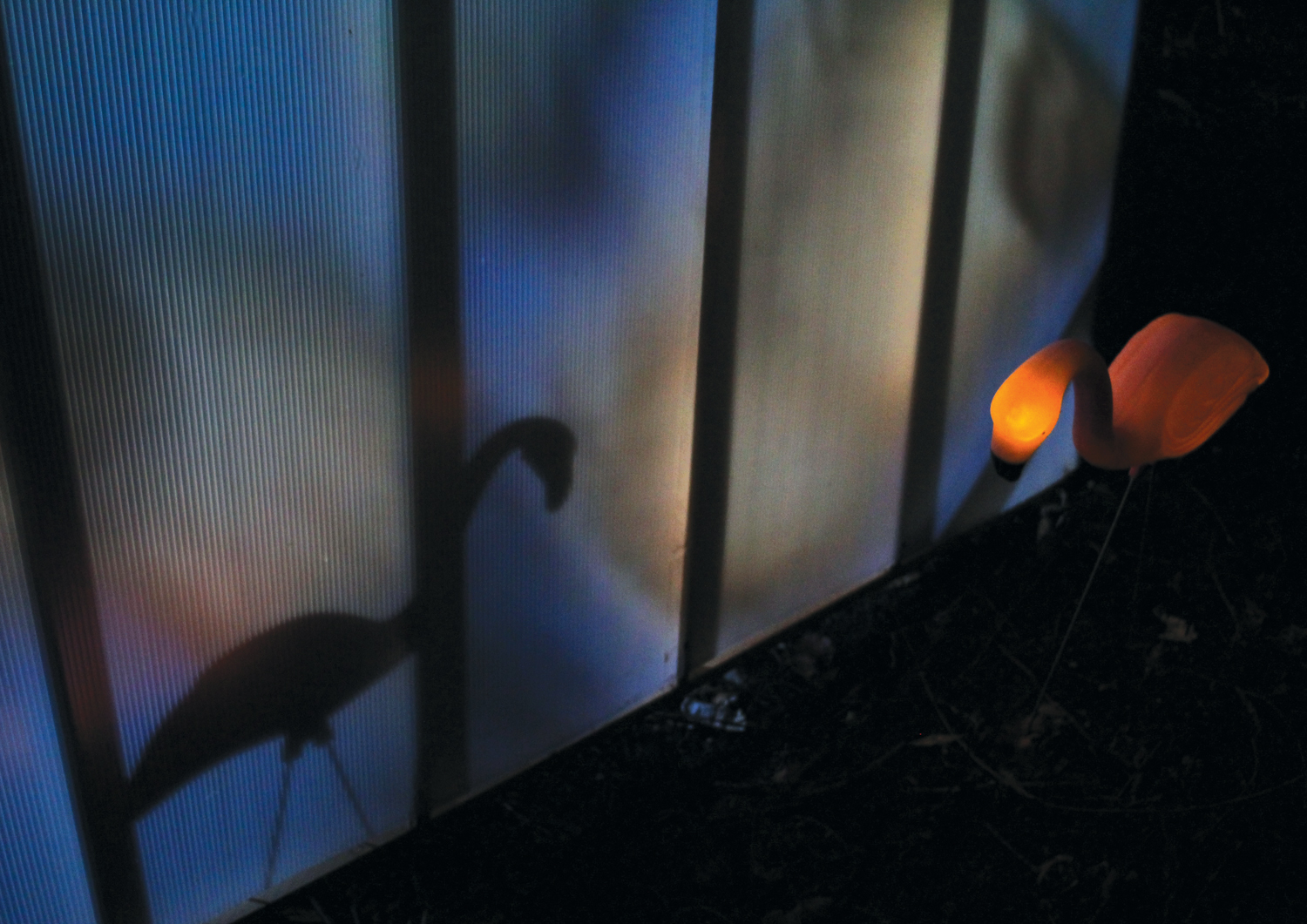“Saturated by media advertising and seemingly infinite choice, our insatiable cravings propel us into a consumer mechanism which threatens to devour us, over and over again.”
The Hunger
2009-2012
Funded by the Canada Council for the Arts & the Ontario Arts Council
Concept, Design and Direction
The project is an adaptation of the classic folk tale of Hansel and Gretel into an immersive, multi-layered performance installation that examines entrapment cycles of escapism and consumption in modern consumer society. Here, instead of recounting the original story in a linear fashion, its essence is distilled into a spatial mechanism, or diagram, to be experienced by an ambulatory audience through movement in time. The end result was a multi-sensory immersive narrative space which integrated installation, sound, live choreography, video projections and lighting. The project was developed in several stages.
[Read more]v.1
Workshop performance installation
4-5 Dec 2009
Installation, sound, video and performance combine to create a surreal, immersive experience providing the audience with a break from the rational monotony of everyday life while inspiring child-like wonder. Both performers and audience members submerge themselves within a forest-like installation via free movement. They interact with it directly through listening to localized sounds (from hidden mini speakers) and consuming baked goods. By doing so, they themselves become part of a world where everything is transformed into a packagable consumer item.
An "edible landscape" made of vacuum-sealed iconic Wonderbread: the paradox of engulfment in bread stripped off its nutritional value and sealed within plastic lends its name to the project.
Location: Deleon White Gallery, Toronto
Choreography by Malgorzata Nowacka
Video by Ulysses Castellanos & John Callaghan
Sound collaborators: Neil Khanna & David Sullivan
Collaborator: Andrea Mastrandrea
Photos: John Callaghan
Conceptual models of "edible landscape"
v.2
Hansel and Gretel
Toronto Scotiabank Nuit Blanche independent project
1-2 Oct 2011
Studies of spatial configurations
Kaleidoscopic video projections, sound, choreography and costume play with repetition, immersing the audience in a dream-like yet uncanny environment. The space is filled with video projections derived from mass culture and advertising imagery: brand name logos, fashion models on runways, package holidays, luxury real estate ads, etc. Performers wearing identical bird masks reference the birds in the original story, who played the role of both spiritual guides and tricksters, guiding people through the space, but also causing them to feel disoriented and lost.
Location: Gallery 99, 99 Sudbury, Toronto
Toronto Scotiabank Nuit Blanche
Choreography by Malgorzata Nowacka
Video by Ulysses Castellanos & Margaret Krawecka
Music: various
Photos: Pelin Yeter
“Imaginative, thought provoking, and conceptually strong, The Hunger is a truly interdisciplinary performance experience. With this production, Uncanny House boldly covers new ground, paving the way for other interdisciplinary artists in this burgeoning field. ”
v.3
Final performance installation
24-27 May 2012
The final version of the project combines previous ideas of edible landscape, kaleidoscopic projections and repetition, while working further with the ‘house’ archetype. A labyrinth made of walls / curtains of bread also serves as video projection screens featuring consumer imagery. Inside, the mobile audience finds embedded mini screens displaying video loops of pop culture and escapist fantasies, while discovering a rich soundscape of TV commercial snippets and empty advertising slogans, in localized mini speakers. Free movement within the installation is facilitated by masked bird characters who serve the audience gingerbread cookies, lead them around and encourage them to consume the sights and sounds.
Location: Scotiabank Studio Theatre (Pia Bouman School for Ballet and Creative Movement), Toronto
Sound design by Richard Windeyer
Lighting & Costume Design by Snezana Pesic
Video by Ulysses Castellanos & Margaret Krawecka
Choreography by Malgorzata Nowacka
Dramaturgy by Ulla Laidlaw
Photos: Branislav Rusic
Harvest Festival adaptation
14-16 Sept 2012
Location: Midlothian Farm, Burk's Falls, Ontario
Collaborators: Ulla Laidlaw & Snezana Pesic
Sound design by Richard Windeyer
Video by Ulysses Castellanos & Margaret Krawecka
Photos: Snezana Pesic
A simplified version of the project was adapted to a forest setting at a weekend festival of music and art. A "breadcrumb trail" of freestanding installation elements serving as beacons of light and localized sound drew the audience deeper into the woods through a sequence of movement, to discover video projections at the back.
